News of the Week: Fall Books, Comma Abuse, and the Weird World of Inebriated Seafood
Read This!
If this were 1988 and a time traveler came back in time and told me that in 2018, Bill Cosby goes to prison, there’s a new Magnum P.I., and President Donald Trump addresses the United Nations, I would have probably put that time traveler in the same category as the guy who stands on the street corner yelling at birds. Of course, it wouldn’t have stopped me from asking him what the Megabucks numbers would be on a certain date.
But those are all actual things that happened this week, which leads me to this: There’s so much news coming at us now, and it’s all simply exhausting. It seems like there is BREAKING NEWS every five minutes (and most of it isn’t even “breaking”), and it has made me tense and irritated. I’m not even on social media and I feel overwhelmed. We’re all in information overload, we all have ADD, and we all need a break.
And we can get that break by turning off the TV, putting down our phones, and opening a book. Here are a few new ones that might interest you.
Leadership in Turbulent Times, by Doris Kearns Goodwin (out now). The historian looks back at four presidents — Abraham Lincoln, Teddy Roosevelt, Franklin D. Roosevelt, and Lyndon B. Johnson — and explains how they became leaders.
None of My Business, by P.J. O’Rourke (out now). The humorist tries to explain the financial world to us, including why you’re not rich.
Your Duck Is My Duck, by Deborah Eisenberg (out now). The acclaimed author is back with a book of short stories, her first collection since 2006.
My Life with John Steinbeck: The Story of John Steinbeck’s Forgotten Wife, by Gwyn Conger Steinbeck (out now). This memoir by the second wife of the Of Mice and Men author reveals some things that his fans might not want to hear.
Transcription, by Kate Atkinson (out now). The latest novel from the acclaimed author of Life after Life and A God in Ruins is “a dramatic story of WWII espionage, betrayal, and loyalty.” She’s one of Stephen King’s favorite writers.
The Reckoning, by John Grisham (October 23). Grisham’s latest novel concerns an attorney who tries to defend one of the most-liked citizens of a small Mississippi town, who admits to killing a pastor and friend, but won’t say why.
Cook Like a Pro, by Ina Garten (October 23). This is the Barefoot Contessa host’s 11th book. I don’t know if you’ll be able to actually cook like a pro, but I bet you can make something that tastes really great.
Too Many Commas
Never mind foreign policy, the economy, or healthcare. I’m more interested in what the current administration is doing about punctuation.
The State Department is cracking down on the misuse of commas in official documents and press releases. According to CNN, Secretary of State Mike Pompeo has sent out emails asking staff to stop using so many commas. It seems that Pompeo is a big fan of the Chicago Manual of Style.
This is all well and good, and I applaud any attempt to fix bad punctuation and bad grammar. I just hope they’re fans of the Oxford Comma.
By the way, the new Magnum P.I. I mentioned above is missing its comma, too. As I told you a while back, CBS did this on purpose so the title would be hashtag-friendly on Twitter and more easily found in Google searches.
Papa John’s May Change Name to Papa Johns
Let me repeat that if you didn’t get it the first time: Papa John’s wants to change its name to Papa Johns.
Do you notice the difference? The apostrophe in John’s is gone (seems like everyone is cracking down on punctuation this week). It’s not a huge change, but the company is trying to distance itself from controversial founder John Schnatter, who is actually trying to buy back the company.
In other name-change news, Weight Watchers is becoming WW. Not only is this name change confusing, it’s also needless. The company wants to focus more on general well-being and health, and not focus so much on weight loss, because the word weight is probably too politically incorrect.
Isn’t WW rather cumbersome? Do they believe that everyone in the world will just forget that the first W stands for weight?
Not to be outdone, Dunkin’ Donuts is changing its name, too. They’re still going to sell donuts (as well as doughnuts), but they want to be known as a beverage place first, so starting in January, it’s just going to be known as Dunkin’. Because everything is ridiculous.
Do We Need a Voice-Controlled Microwave?
No, of course not. But that’s not stopping them from coming.
Amazon wants to be in every single room of our homes, and one of their kitchen items is a microwave that takes commands via Alexa. The Senior Vice President of Amazon Devices says “the user interface is stuck in the ’70s,” and it’s time for something like this. Yes, those days of pressing a button on your microwave are soooooo 1979.
The only way a voice-controlled microwave would make sense is if it goes to the supermarket for me, places the meals in the microwave for me, and then yells at me for buying microwave dinners instead of cooking something myself.
Sea-Weed
Did you know that octopuses (and I’ll never believe that’s the plural) are more social when they’re given the drug ecstasy?
That’s the odd headline in this BBC story. I don’t know why you’d want to make an octopus more social, but there it is.
And they’re not the only citizens of the sea who are getting high. Charlotte’s Legendary Lobster Pound, a restaurant in Maine, has been giving marijuana to lobsters to make them more docile and sleepy before they’re, well, thrown in boiling water. The state of Maine has asked the restaurant to stop doing this.
By the way, Social Octopus was the name of my high school ska band.
RIP Gary Kurtz, Jack Young, and Laurie Mitchell
Gary Kurtz produced such movies as Star Wars, The Empire Strikes Back, American Graffiti, and The Dark Crystal. He died Sunday at the age of 78.
Jack Young was a stuntman who worked on dozens of movies over the years, including Rio Bravo (he’s the guy who falls from the loft after Dean Martin shoots him), D.O.A., High Noon, The Conqueror, 3:10 to Yuma, The Alamo, and How the West Was Won. He died last month at the age of 91.
Laurie Mitchell played the evil space queen in the 1950s camp classic Queen of Outer Space. She also appeared in Attack of the Puppet People and TV shows like 77 Sunset Strip, Perry Mason, and Richard Diamond, Private Detective. She died last week at the age of 90.
Quote of the Week
“Why would they cancel a popular show that everybody loves?!”
—Kyle, surfing around, looking for his favorite TV show, on tonight’s season premiere of Last Man Standing, now on Fox after being canceled by ABC
This Week in History
60 Minutes Premieres (September 24, 1968)
The venerable CBS news magazine celebrated 50 years this week. Here are five times the show shocked viewers, and here’s our interview with humorist Andy Rooney.
William Faulkner Born (September 25, 1897)
The Post published 22 short stories by the Southern writer from 1930 until 1967. He won the Nobel Prize for literature in 1949.
This Week in Saturday Evening Post History: Penny Candy (September 23, 1944)
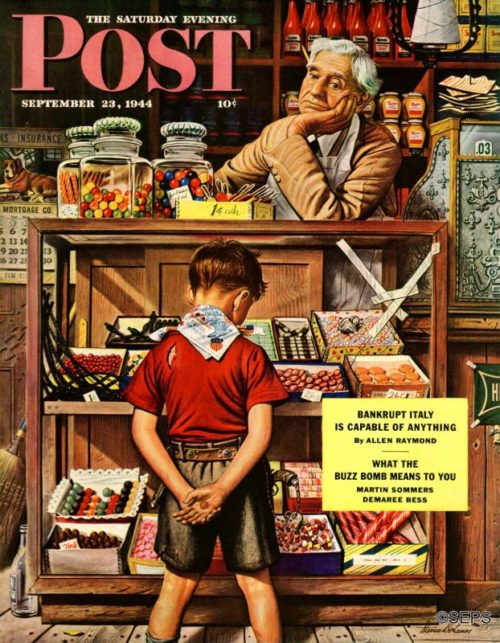
Stevan Dohanos
September 23, 1944
One of my favorite childhood memories is going to the store and getting a big bag of penny candy and other goodies. The expression on the clerk’s face in this Stevan Dohanos painting is one I remember well. Come on kid, what do you want, I have things to do.
The taped glass is a nice touch. Probably from kids tapping on the glass too hard, pointing to the candy they want.
National Coffee Day
I always laugh to myself when I hear about this holiday, because people who drink coffee don’t need a special day. They drink it every day anyway. You’re probably drinking a cup right now as you’re reading this.
Saturday is National Coffee Day, and many of the chains are having special deals. I couldn’t find anything for Starbucks, but at Krispy Kreme you can get a free hot or iced coffee of any size. Peet’s is offering a free drip coffee or tea and 25% off a pound of beans at participating locations. And Dunkin’ Donuts is having a “buy one, get one free” promotion on hot coffee all day long.
Oh, sorry: DUNKIN’. I’m never going to get used to that.
Next Week’s Holidays and Events
Clergy Appreciation Month
October is the month when congregations honor their pastors and priests and their families. This month also has Clergy Appreciation Day, which this year is October 14.
Get Organized Week (October 1-7)
New Year’s Day seems like the logical time to change things up and finally get organized, with a fresh new year starting up. But many people (like me) like to do it in the fall, when the air turns cool and kids are back in school and everyone has more energy and it’s time to go to The Container Store and Staples for supplies to get things organized.
But that’s next week. This week, you can still be disorganized and frantic if you want.
The Best-Selling Author Who Made a Criminal Career of Forgery
“I have a hangover that is a real museum piece; I’m sure then that I must have said something terrible. To save me this kind of exertion in the future, I am thinking of having little letters runoff saying, ‘Can you ever forgive me?
Dorothy.’”
From her pithy poems and short stories to her legendary letters, Dorothy Parker’s snappy and acerbic writing was thought to be unmistakable. But Dorothy Parker didn’t write the excerpt above; Lee Israel did.
The biographer-turned-forger stole or fabricated hundreds of literary letters in the 1990s, and her 2008 memoir, Can You Ever Forgive Me?, has been adapted into a film — starring Melissa McCarthy as Israel — to be released on October 19th.
Before Israel became a criminal of correspondence, she was a freelance culture writer and Times best-selling author. Her biographies of Tallulah Bankhead (Miss Tallulah Bankhead) and Dorothy Kilgallen (Kilgallen) earned her moderate success as an author that was obliterated in a publishing war with Estée Lauder.
Estée Lauder: Beyond the Magic — a gossipy tell-all of the makeup magnate — released concurrently with the businesswoman’s own biography in 1985 and promptly tanked, dragging Israel’s reputation down with it. Years later, she regretted refusing an offer from Lauder to kill the book. As she told it in her memoir, “Instead of taking a great deal of money from a woman rich as Oprah, I published a bad, unimportant book, rushed out in months to beat the other little piggy to market.”
Israel spent years in poverty and on welfare with writer’s block and likely alcoholism. Described as a difficult person, she found it impossible to be employed in wage work, and held resentment for her fall from grace: “Writers, unlike lawyers, doctors, agents, and Verizon Information, do not get paid when they fail or misjudge,” she wrote.
Her crime spree began in the early ’90s, when she lifted some original Fanny Brice letters from the library and sold them for 40 dollars each. One letter, she noticed, bared some white space before the signature where she could insert some juicy lines of her own to up the price.
It was after Israel realized her new medium — forgery — that she created, as she said, her best work. She composed imaginary correspondence from Noël Coward that she claimed was “better Coward than Coward,” and whipped up phony letters from Lillian Hellman, Edna Ferber, and Louise Brooks, among others. One letter authored by Israel, and featured in The Letters of Noël Coward, delivered a course comment on Julie Andrews: “She is a bright, talented actress, and quite attractive since she dealt with her monstrous English overbite.” Israel bragged that her work passed for that of the cosmopolitan creative elite, but it was typed out in “a room with a view not of Alpine splendor, but of brick and pigeons.”
To ensure utmost authenticity in her ruse, Israel scoured secondhand stores for period typewriters — kept in a storage locker on the Upper West Side near her apartment — and she tore vintage paper from old journals in libraries. Her previous writing work had equipped her with the research skills necessary to analyze and imitate the stylistic quirks of larger-than-life entertainers and legends from the Algonquin Round Table. She found autograph dealers around the country who would pay 50 to 100 dollars for each letter, a modest price, and made up stories about how she had come to own them. Many of the dealers, however, were remarkably indifferent about the origins of the works, she claimed.
The truly “evil” part of her new vocation, she admitted, happened slowly. Some suspicions arose when Israel began to write overt homosexual references into her Coward letters (a farfetched conceit, given the harsh offenses for homosexuality in his time), so she stopped drafting new letters and took to stealing the originals from the library. She brought them home, made counterfeit versions, and switched the two. This new method led to her undoing when a dealer came in contact with her library of choice over a Hemingway missive.
Israel never saw jail time, but she did get six months of house arrest and five years of probation for her crimes. In the end, she scantly regretted her years spent in “such good company” as the deceased subjects of her forgeries. Her memoir was named after the ambiguous sign-off she attributed to Dorothy Parker, explaining in an interview, “I want to be forgiven, yet I’m not going to give a full-throated apology.” Israel attributed her actions to desperation and maintained that only someone as well-read and as charming as she could have convincingly brought to life some of the most iconic voices of the 20th century.
The Next Word
The next word to come out of Matthew Vinatieri’s mouth would undoubtedly be the most important one of his life.
This was, to say the very least, an unfortunate turn of events.
Meanwhile, somewhere well outside the confines of Matthew’s lips, the universe was acting predictably uncooperative, as per its usual state of being. Over the loudspeakers, Billy Joel’s voice crooned about Brenda and Eddie who were still going steady in the summer of ’75. The sun was setting. The lights were dimming. The murmur of unrelated lives haphazardly congregated together but for one night grew louder and louder. A bartender poured out another pair of shots for two men in business suits who had been sitting in the same stools since happy hour and who would undoubtedly be there until closing time. Behind them, a group of women celebrated a birthday with shrieks and toasts and glasses of overpriced wine that splished and splashed onto the floor while an older man with sunglasses and a suspiciously runny nose stumbled out of the bathroom door and nearly slipped and fell over a poorly dressed college student who was drinking by himself in the corner with his eyes glued to a hockey game playing on the television screen above the bar, and all the while the dinner crowd continued to shuffle out while the cocktail crowd drunkenly stumbled its way in, and by this point Brenda and Eddie had already gotten an apartment with deep pile carpet and a couple of paintings from Sears. Yet none of the noise and none of the static surrounding Matthew seemed to have the slightest bit of sympathy that the next damn word to come out of his stupid mouth would be the most important one of his damn stupid life.
On the bright side, at least Matthew knew to where he was supposed to direct this said word. That part was easy enough. It was to be directed — at an adequate volume and with a moderate tempo — towards the neighboring stool which stood approximately two feet away from him.
Or, to be slightly more specific, to the man who was sitting on the neighboring stool which stood approximately two feet away from him.
A man named Brandon Kimmel.
Brandon. Twenty-nine years of age with a scruffy beard and blue eyes and a tattoo on his forearm and who was also a good two inches shorter than his dating profile had previously suggested, which Matthew was more than willing to forgive in its totality simply in exchange for Brandon’s unconditional and undying love.
Which, to Matthew, seemed like a fair trade.
And to his credit, the glass of bourbon perspiring on the bar top next to him seemed to agree. Matthew took a nervous sip from it, and another one after that. The bourbon lit a fire on his lips that cascaded to the back of his throat and exploded all the way down to the pit of his stomach. This was already Matthew’s third drink of the night. The first had been a beer he had guzzled frantically while showering, while the second had been a far too strong Irish coffee he had smuggled onto the subway.
The drinks, of course, were intended to serve a very important purpose. They were there to calm Matthew’s nerves, which were in desperate need of calming. Though in defense of his nerves, there weren’t too many first dates for Matthew Vinatieri. Second dates were even rarer. And by this point, Matthew wasn’t quite sure what exactly a third date entailed or if such a thing even actually existed.
Needless to say, it was important for Matthew to get off on the right foot — even if that foot had been rendered slightly inebriated and undeniably uncoordinated. Yet thus far, those three drinks had conspired together to do just the opposite. Rather than making his words silky smooth, the alcohol blended them all up like a cheap cocktail which swished and swirled around Matthew’s head in a jumbled mess. Every little thing made him dumbstruck and confused and in desperate hope that perhaps a fourth drink could get the other three to behave properly.
Every little thing going on was too much. Even little things like simple questions. Which, coincidentally, is exactly what Brandon had asked Matthew.
A simple, little question.
There was no doubt about it, either. There were all the hallmarks of a simple, little question. Small words. Few syllables. Limited variety of letters. All of which formed together into a short and concise question. It even ended in a clear and defined question mark, too. Granted, Brandon had asked this question verbally, so therefore there hadn’t necessarily been a visible, literal, tangible question mark. Per say. But it was still there, all right. Matthew could see it just fine. Brandon’s intonation had been nothing short of a grammatical symphony. It rose in a crescendo, up and up and up before swooping down and then, at the very last second before it crashed into the ground with a fiery flame, it swooped back up again and trailed off into the dimly lit noise of the bar, twirling and twisting in and around itself into a perfectly formed question mark before it all faded away graciously like a puff of smoke whispering something softly into the dead of night.
So, yes. It had been a simple, little question. And at the tail end of that question, there awaited only two answers. Either Matthew could say “yes.” Or he could say “no.”
That was it. Two little words. “Yes” and “no.”
It sounded easy enough. But Matthew knew better. Oh, did he know better. Matthew knew that those two little words were in fact worlds apart. Galaxies, even. And Matthew also knew that whichever answer he picked, whichever word he uttered out of his stupid mouth, it would undoubtedly be the most important one in his life. Deep down, Matthew knew that word would determine whether or not there would be a second date or, dare he even dream, a third date after that. One word and one word alone would decide if Matthew would be led on a path to eternal happiness, or if he’d be forever alone.
“Yes.” Or “no.”
Brenda and Eddie were already starting to fight when the money got tight and Matthew needed to make a decision.
He prodded each word.
First, there was “yes.”
“Yes” seemed nice.
“Yes” was positive, for starters. It was agreeable. It was outgoing and popular and optimistic about the future and it seized the day. “Yes” was the sort of word that looked at the glass as half full. It looked at life with a can-do attitude. And at the end of it all, “yes” led to a plan. Better yet. To a realization that things happen for a reason and that everything works out in the end as long as you believe that they will, gosh darn it.
“Yes” was all smiles and sunshine and kittens. People like “yes.” And more importantly, people like people who say “yes.”
And yet. The more Matthew thought about it, maybe, just maybe, “yes” was a little bit too nice. Maybe it was just a little bit too eager to please.
“Yes” could be simple-minded. Naïve. Stupid. Desperate. And if there was anything Matthew couldn’t afford to come across as, it was simple-minded and naïve and stupid and desperate.
Maybe, just maybe, what Matthew needed was a “no.”
“No” was critical, true. But “no” was also thoughtful. Analytical. “No” was a rebel. Anti-establishment. Black flag. Independent. Punk rock. “No” was a master of its own destiny. “No” didn’t get dictated to by life. On the contrary. “No” grabbed life by the proverbial genitals and told it what the damn plan was. And if life didn’t like it, “no” told it precisely where it could stick it.
“No” was strong.
People like strong.
And yet. “No” could also be a bit of a stick in the mud, too, couldn’t it? “No” could be a bit of a jerk. “No” upsets people. “No” causes waves. And sometimes, people just want to float on calm waters.
Matthew took another sip of his drink.
Time was running out. So was his bourbon.
He grimaced. His face twitched. He hoped that any sort of noise would just hop out of his mouth, all by its own doing. That an answer would find itself.
By now, Brenda and Eddie had had it already by the summer of ’75.
Matthew needed to say something. Anything. And now. So, he weighed both options. He examined their benefits. Inspected their detriments. Made mental tally marks of what they offered and where they fit in and how they could each single-handedly change his life from here on out. And after carefully weighing both options and counting their tallies, he flipped a coin.
It landed with a thud.
“No,” he blurted out. “I mean, not really. No. I don’t really follow any of that stuff. Not really.”
Brandon smiled that smile of his. “Oh, that’s all right,” he said. “You know, I’m actually sort of into astrology myself. I think it’s sort of fun, you know?”
Matthew nodded. The nod was a lie, though. Clearly, he didn’t know. He didn’t know anything. Matthew didn’t know anything for one thing, that is. That this was it. That he had picked incorrectly. And that now, there was no other conclusion to draw other than that he was clearly on a path to eternal loneliness. There would be no second date, he figured, and there would certainly be no third date. Not after an answer like that. No. There would only be more bourbon and Irish coffees smuggled onto the subway and beers drank in the shower.
Well outside the confines of Matthew’s lips, the lights in the bar continued to dim. The dinner crowd dwindled. The cocktail crowd grew larger and larger. Shots were kicked and overpriced alcohol splished and splashed and people stumbled in and out of doors. From a stool approximately two feet away, Brandon smiled that smile of his, a smile which completely escaped Matthew’s notice. And in the background, Billy Joel’s voice crooned about how the best they could do was to pick up the pieces, but that they always knew they’d both find a way to get by.
10 Years Ago: Elon Musk’s Conquest of Space Begins
Space Exploration Technologies Corporation had a vision: they would make it easier to access outer space. Other companies had tried privately funded space travel before, but no one else had attempted it with an ambitious agenda of cheaper builds, reusable craft, and Mars colonization in the long view. But on September 28, 2008, SpaceX took the first giant leap toward their future with the launch of Falcon 1.
SpaceX founder Elon Musk already had a high business profile when he founded the company in 2002. He and his brother had founded the software company Zip2, , with Musk making $22 million off of its sale in 1999. That same year, Musk co-founded X.com, an online financial company. X.com merged with Confinity, and the company renamed itself after the Confinity product PayPal. In 2002, eBay bought PayPal; Musk’s stock share earned him $165 million in the sale. Musk investigated purchasing refurbished rockets from Russia to attempt his “Mars Oasis” plan of putting a greenhouse on the Red Planet, but ultimately realized it would be cheaper to build the rockets himself. With $100 million of his own money, he founded SpaceX in May of 2002.
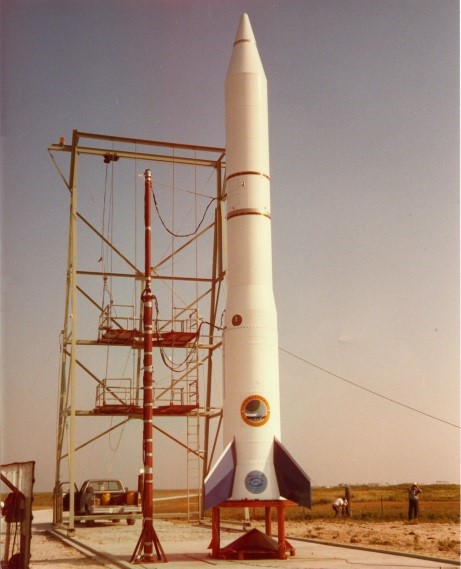
There had been other attempts to privately fund and launch rockets in the past. The Conestoga, built by Space Services Incorporated, reached space in 1982, but the series was only launched three times before it was shut down. The Northrop Grumman craft Pegasus used an air-launch strategy where it would be lifted into the air by a plane, and then released mid-air for launch. The first successful Pegasus mission happened in 1990; there have been 42 further launches to date, with another scheduled for October, 2018.
But SpaceX always had a longer view, and the differences in approach and goal would be built into the program. Among the SpaceX priorities was a smaller launch price point with an eye toward using the rocket to position low-Earth-orbit satellites; cheaper delivery was seen as a possible boon to business and development and a profit-center for future partnerships. Falcon would also use liquid fuel, which was a departure from solid-rocket boosters used by NASA on the Space Shuttle. The final design for Falcon made it a two-stage rocket, meaning that one stage, after achieving boost and lift, would separate, allowing the main portion to achieve orbit.
It took $90 million dollars to develop Falcon, and that was the small hurdle. The important thing was making sure it worked. The Department of Defense paid for the first two test launches after development because they were interested in seeing what kind of practical application the system might offer. Flight test one failed after one minute because of a fuel line rupture. The second test had multiple issues, but Musk and his team wrote it up as a success because they were able to determine that 95 percent of the systems in the vehicle worked properly. The third launch in August 2008 failed when, after stage separation, two sections of the rocket hit each other again. At that point, things were financially grim for the venture; the next attempt had to be a success.
SpaceX released this video of Falcon 1 highlights.
The fourth flight came on September 28, 2008. As Musk himself would later say, the future of the company was riding on it. One correction — an increase in the time between the burn-out of the first stage and separation of the second — appeared to have fixed the cause of failure from the third flight. Falcon 1 achieved orbit, placed a non-functioning spacecraft weighing 363 pounds in orbit as well, and completed its mission. The Falcon 1 designation would be used again the following year for a successful July 2009 launch that also included delivery of a vehicular payload into orbit. At the 2017 International Aeronautical Conference, Musk was frank about the need for the fourth flight to succeed; he said, “The first three launches failed. . . [The] fourth launch worked, or that would have been it for SpaceX.”

The legacy of Falcon lives on at SpaceX. Falcon 1 was, according to SpaceX, “the first privately-developed liquid-fueled rocket to successfully reach orbit.” Its success secured a contract with NASA to deliver cargo to the International Space Station, with an original cost of a comparatively affordable $9 million per launch. Today, SpaceX has made their way to the Falcon 9 and Falcon Heavy series; Falcon 9 has had 61 missions, the most recent of which in placed a Telstar 18V communications satellite in orbit earlier this month.
SpaceX hasn’t simply rested on their laurels with Falcon. They’ve continued to push the boundaries of what its possible. They’ve developed the Dragon, a capsule-craft that is capable of carrying either cargo or astronauts; it’s been used in resupply missions for the International Space Station. SpaceX moved sustainability a huge distance forward with their creation of the reusable launch system; this system allows separated boosters to return to Earth under their own power and land for later re-use. The next giant leap for SpaceX will be the BFR, or the Big Falcon Rocket. Scheduled to replace the other series sometime in the 2020s, it will cover all the applications (resupply, human transport, interplanetary movement) and be the most powerful rocket ever created. The BFR would have the capability to satisfy Musk’s dream of Mars; at SXSW in 2013, Musk said, “I’d like to die on Mars, just not on impact.”
While the Mars greenhouse has yet to be conquered, Musk is making good on his vision of cheaper, more frequent spaceflight with reusable components. He currently plans to have a craft orbit the Moon with a civilian on board as part of a “lunar tourism” initiative. During the commission of Falcon development, Musk also had time to found auto manufacturer Tesla in 2003. Whatever direction SpaceX goes in the future, it’s sure to be eagerly observed and imitated.
Unfortunately, the anniversary of Falcon’s success finds Tesla in serious turmoil. On September 27, the Securities and Exchange Commission accused Musk of making false public statements based on a comment that he made on Twitter in early August. According to the SEC, Musk’s tweet, “Am considering taking Tesla private at $420. Funding secured,” constitutes a type of fraud that could mislead investors. Tesla’s directors released a statement that the are “fully confident in Elon, his integrity and his leadership of the company.” Tesla itself is not named as a party in the suit. It will likely take some time for this situation to play out in the courts. No matter the outcome, one thing is certain: Elon Musk has a knack for getting attention.
Featured image: Shutterstock.com
In a Word: An Airing Out of ‘Feisty’
Managing editor and logophile Andy Hollandbeck reveals the sometimes surprising roots of common English words and phrases. Remember: Etymology tells us where a word comes from, but not what it means today.
The adjective feisty is often used to describe people (usually women) who show a lively aggressiveness in their demeanor, like one of those small, yappy dogs that seems to have endless energy and spunk. The comparison here isn’t an accident: feist has been a generic term for a small dog used for hunting game animals since the time of the American Revolution, and later it became a derisive term for a lapdog, both literal and metaphorical.
Feist came from the shortening of an earlier phrase fysting curre, “stinking cur.” We might think of a cur, if we think of it at all, as a low-bred or immoral man, but the term was originally a deprecatory term for a dog.
The fysting (or fisting) of fysting curre comes from the Middle English verb fysten (or fisten) “to break wind,” which is also where we get the word fizzle.
Etymologically, then, feisty traces back to the expulsion of malodorous intestinal gases.
While we often hold Shakespeare up as a matchless master of English composition, he was no stranger to either the common vernacular or bathroom humor. Thus we find, in Pericles, Prince of Tyre Act IV, Scene 5, the following outburst from Pericles’ daughter Marina:
To the choleric fisting of every rogue
Thy ear is liable, thy food is such
As hath been belch’d on by infected lungs.
Language changes, of course, and while we do find arguments to avoid feisty because of its sexist overtones, at least it’s divorced from its flatulent past.
The Saturday Evening Post History Minute: The Story of Uncle Sam
Who is Uncle Sam? Why is he dressed that way? And how did he come to represent the United States?
See more History Minute videos.
Top 10 Reads for Autumn 2018
Every month, Amazon staffers sift through hundreds of new books searching for gems. Here’s what Amazon editor Chris Schluep chose especially for Post readers.
Fiction
Transcription
by Kate Akinson
A young woman’s past life in British espionage during WWII unexpectedly revisits her 10 years later.
Little, Brown & Co.
Virgil Wander
by Leif Enger
A small Midwestern town blossoms to life through Enger’s depiction of its colorful denizens.
Grove Press
 The Witch Elm
The Witch Elm
by Tana French
Toby leads a happy, unconcerned life — until a skull is found in a tree, leading us to question what lurks beneath the surface.
Viking
 Unsheltered
Unsheltered
by Barbara Kingsolver
In alternating chapters, this novel tells the story of two people separated by a century and what it takes to face life’s challenges.
Harper
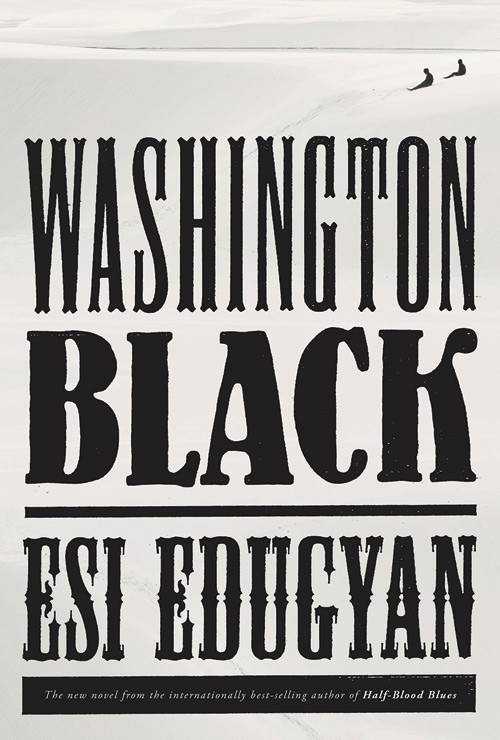 Washington Black
Washington Black
by Esi Edugyan
Profound, beautiful, and wise, this book about a runaway slave is also a full-blown adventure novel that is full of twists and turns.
Knopf
Nonfiction
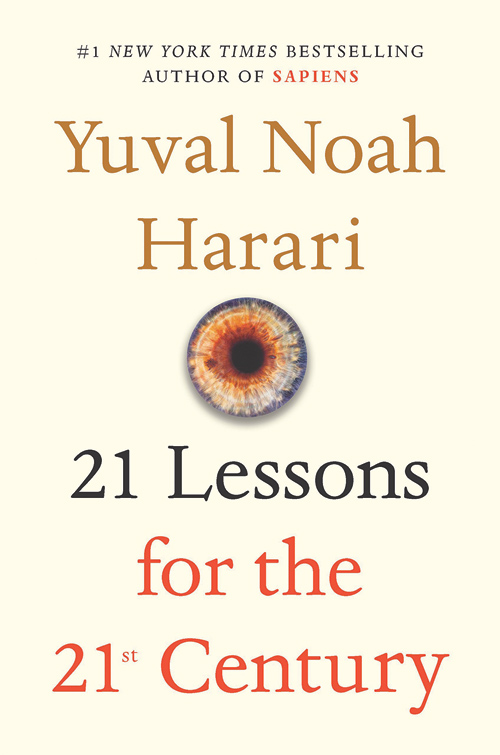 21 Lessons for the 21st Century
21 Lessons for the 21st Century
by Yuval Noah Harari
The Sapiens and Homo Deus author provides 21 essays to help you untangle and prepare for the near future.
Spiegel & Grau
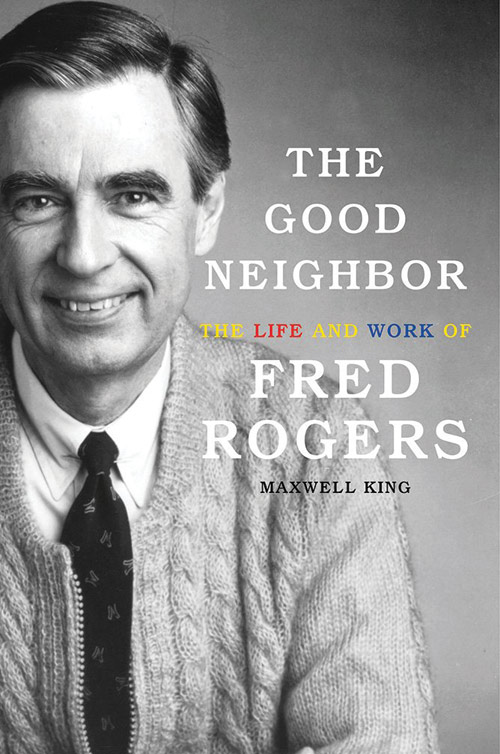 The Good Neighbor: The Life and Work of Fred Rogers
The Good Neighbor: The Life and Work of Fred Rogers
by Maxwell King
The iconic Mr. Rogers finally gets the full-length and definitive biography he deserves.
Abrams Press
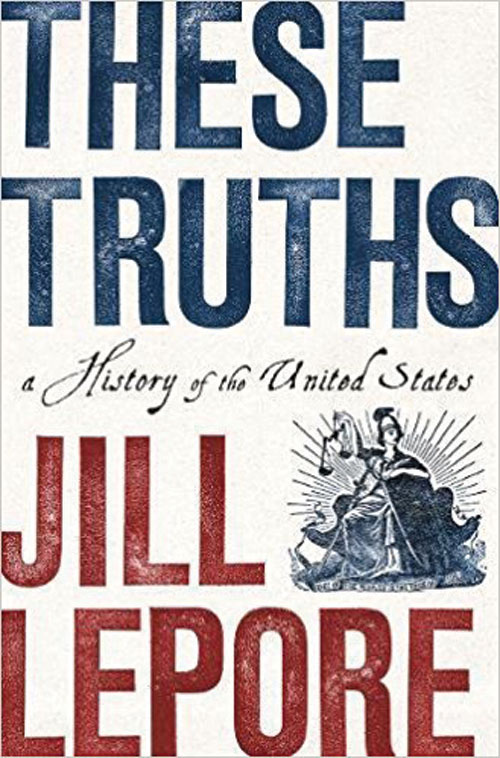 These Truths: A History of the United States
These Truths: A History of the United States
by Jill Lepore
The first single-volume history of America in decades, written by a New Yorker journalist and Harvard historian.
W.W. Norton
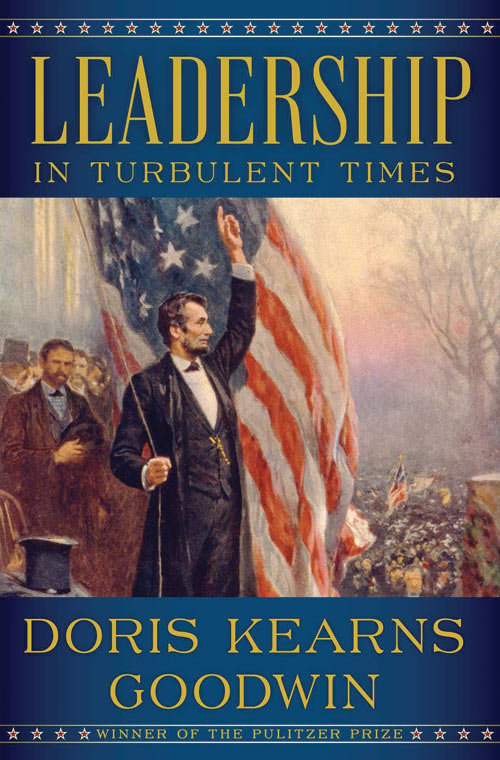 Leadership in Turbulent Times
Leadership in Turbulent Times
by Doris Kearns Goodwin
The celebrated biographer draws upon four presidents — Lincoln, the Roosevelts, and LBJ — to examine what it takes to lead.
Simon & Schuster
 Napoleon: A Life
Napoleon: A Life
by Adam Zamoyski
Zamoyski’s examines what Napoleon was trying to achieve, in the context of the European Enlightenment.
Basic Books
North Country Girl: Chapter 71 — Me and the Other Guy
Gay Haubner is taking a hiatus from her weekly series. Look for occasional updates in the future. For more about Gay’s life, read the other chapters in her serialized memoir.
1980 was the winter of my discontent. I had a dream of a life in Manhattan, barely working at Penthouse magazine, enjoying my own expense account plus our advertisers’ largesse, and going home at night to Michael, my artist boyfriend, to party in our own tiny apartment, or out at bars and clubs with a slew of musician, artist, and writer friends. But inside me there was a gnawing worm, a niggling “What if?” that had taken root when I turned down an offer to join the crew of a Mediterranean yacht as cook and bottle washer.
Where in the world would I be if I had dared to accept that job? What adventures, what interesting men had I missed out on? Who would that girl be if she had walked the gangplank onto the yacht with nothing but her passport and a handful of pesos, leaving her New York City life behind? I rode the subway to work, turned in my magazine copy, kissed Michael good night, and rued that sensible decision to stay in my enviable rut.
I was a latent dumpster fire in need of a thrown match. The spark that blazed my life to the ground was lit at a party at the apartment of the Penthouse production manager, in the midst of a mass of people who had collectively reached that level of inebriation where everyone is dancing. Rockpile’s “Girls Talk” was blasting at a volume of 11 and I was swirling in the arms and trampling on the feet of a wiry, bushy-haired, Brooklyn-tinged guy from work, one of those cute Canarsie kids who can pass for Italian.
I wasn’t sure what Jeff’s real job was; I knew him as the coach of our Penthouse Pet softball team, which had recruited me to pose as a fake Pet, barnstorming across New Jersey and Long Island. I played left field like Ferdinand the Bull, smelling the flowers while ground balls and popped flies passed me by. It didn’t matter. These were charity games against the Elks and VFW and Rotary Club, teams made up of civic-minded suburban dads, good clean Penthouse fun for good causes.
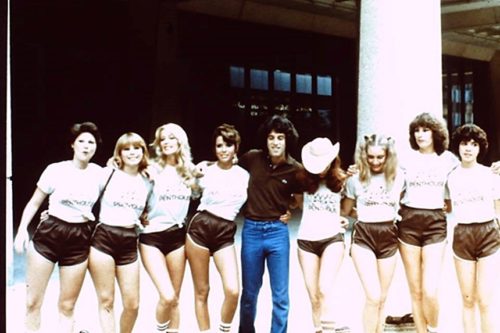
My softball coach’s hands wriggled down to find my ass, a move that might have been cause for a lawsuit 30 years later. We were both out of our minds, bordering on blackout unconscious, but I felt lips and hot breath on my ear and heard words that singed me: “I could really go for you Gay…if I didn’t like your boyfriend so much.”
It felt like another door closing, another option cut off…because I had a boyfriend.
The next weekend I rounded up a bunch of my Penthouse pals for a night out at the infamous, ridiculously popular Mudd Club. The Mudd Club was the last hurrah of NYC punk culture; it had its own obliging PR agent. “I’m calling from Penthouse magazine, we’re interested in doing an article on the Mudd Club,” I had fibbed on the phone. The PR guy assured me my name would be at the door and asked how many. “Oh, there’ll be a few other people from editorial,” I said.
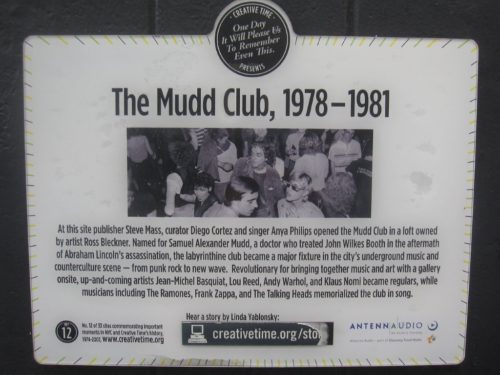
We showed up at the Mudd Club at midnight: me, my boyfriend Michael, six people, not necessarily editors, from Penthouse, their dates, my softball coach and dance partner, Jeff, and random friends we had picked up earlier. I wormed my way through the crush of punk hopefuls to the Bluto in charge of admittance, who, mirabile dictu, found my name on the guest list. I waved to my friends, shouted, “Come on!” and was swept inside on a wave of shoving, thrusting bodies.
The door slammed shut behind me. It was as dark as a mine and I was at the center of a throbbing mob, unable to see if everyone had gotten in with me. The whole place was a filthy mosh pit, floors so sticky you could barely move your feet, everything, even the ceiling, painted black and covered with graffiti, ear-shattering music that made conversation a ludicrous idea, an atmosphere tinged with piss and sweat and spilt beer.
A strong hand grasped my arm and pulled me over to the wall. Jeff handed me a Rolling Rock and a Quaalude, never my favorite drug but an old pal from Mexico. I took them both. “Who else got in?” I yelled, and Jeff shrugged.
Then we leaned back against that grimy brick wall and we were kissing and hands were maneuvered inside clothing and Jeff and I were doing everything outside of actual sex, which at the moment seemed like the most appropriate thing one could do at the Mudd Club, like snorting coke at Studio 54.
The hour we spent in fervent frottage wasn’t enough. “What time do you have to be at work Monday?” I asked when Jeff let me up for air. He looked puzzled; were we going to do this for the next 36 hours?
“Ten?” he answered.
“I’ll be at your place at nine,” I said, extracted myself, and found my way outside, almost certain in my addled state that my boyfriend Michael would still be hanging around. He was at home, rightfully furious, and drinking straight from a bottle of Jack Daniels. I was tousled and plastered myself as I apologized and told untruths about how I had searched the Mudd Club for him, certain that he had been right behind me, and then couldn’t find a taxi.
The actual, real, illicitly thrilling sex happened Monday morning; then Jeff and I split a cab from his apartment uptown to the Penthouse office. We rode in silence. That was fun, I thought, it’s good to get it out of my system, once was certainly enough.
Once was not enough. I did not escape from my perfect life on a yacht or a plane, and certainly not on a train to glory. I climbed into a handbasket to hell. I plunged into a dirty affair, heated even hotter by our struggle to find somewhere to do it: Jeff’s roommate regarded Michael as his good friend, as did everyone I had ever introduced to Michael.
I imagined our affair as a stain on a shirt, I just had to keep putting it in the washer until the stain was gone and the shirt was wearable again. But there was no out for this damn spot.
As all successful cheaters do, I became an accomplished liar, especially to myself. But now I can see the awful truth. It was fun. It was a champagne fizz of feelings, a flip-flopping stomach, skin ready to burst into flame at a touch. Even my eyesight sharpened; it was like getting my childhood once-a-year glasses upgrade, the world in high-res.
And my hearing was dog-pitched; every bar and restaurant I went to, every car radio that passed was tuned to the Miscreants station: “Me and Mrs. Jones,” “Dark End of the Street,” and “If Loving You is Wrong” on repeat all over New York City.
Michael didn’t seem to notice that I was being invited to more nighttime press events, even when those events morphed into weekend affairs.
My job had always provided me access to test drive cars, a perk I had never taken advantage of, Michael being completely disinclined to leave the city for the wilds of upstate New York or Connecticut lest he be lost in the woods, eaten by a bear, or more than a block from a bar.
Jeff and I took stolen weekends in borrowed Datsuns and Subarus, headed for the homes of friends of his who had never met Michael, so Jeff could pass me off as his girlfriend.
A Sunday night, we headed back from Providence, Rhode Island, ostensibly visiting one of Jeff’s high school pals, but spending most of the weekend in the friend’s basement guest room. We were on an almost deserted highway that stretched ahead of us in the dark, a long way to New York City, a long time for me to ponder my sins.
I have to do something, I scolded myself. I love Michael, I can’t go on like this. Meanwhile the part of me that wasn’t lying knew I certainly could until something made me stop.
The single car in front of us accelerated and began to swerve from one lane to the next. I had been so quiet for so long that I couldn’t find my voice to cry “Watch out!” not that Jeff had a clue where to steer to not be in the path of this lunatic, who now sped across all four highway lanes and side-swiped a sixty-foot floodlight. In what seemed to be slow motion, the streetlight pitched towards our car like a felled redwood, hit ten feet in front of us, took a bounce, and landed inches in front of our loaner, a factory-fresh Nissan 280ZX. The flashing lights of the highway patrol appeared in the northbound lane, coming for the guilty parties; Jeff inched our borrowed car onto the shoulder and around our brush with a well-deserved death.

A believer in signs and portents, I almost saw the light. “We can’t do this anymore,” I said to Jeff after we dropped off the car at the dealership, even while we were in a clutch that made passersby either grin or avert their eyes.
My resolve lasted about a week, until I realized that I had an out-of-town trip in my future, a Penthouse expense account junket to the Electronics Show in Las Vegas, Mecca of the dirty weekend, a city made for cheating hearts. “This is really, really it,” I fooled myself, “three nights with Jeff in the Holiday Inn, clean sheets and towels, room service…it will be the perfect ending.”
Holiday Inn, Las Vegas.
Of course it wasn’t. But the champagne was losing its fizz, my guilty conscience turning vinegary.
A few weeks after Las Vegas, the Penthouse editorial staff was summoned by our boss, Jim Goode, to his office, always an evil omen. “Caligula,” intoned Jim. “It’s finally going to open.”
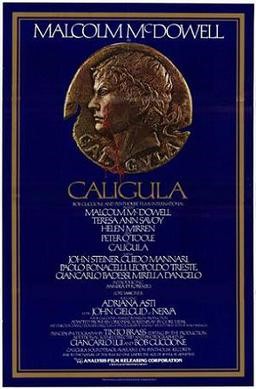
Caligula was the fabled, almost mythical motion picture that we had been hearing about forever, a cinematic epic featuring Bob Guccione’s penchant for fake Roman anything, large-breasted girls engaging in deviant sex, and out-of-work British actors, wooed by oversized checks. The magazine had already run dozens of articles hyping the film, as well as several pictorials of “The Girls of Caligula” taking off their togas to veni, vidi, vici. (Uncovered by Penthouse were the lawsuits from both screenwriter Gore Vidal and the original director desperately trying to extract their names from this pornographic debacle.) From the stories and movie stills, it seemed like it was as if it wasn’t enough for the Roman Empire to fall, Caligula had to kick it in the nuts on its way down.
“And…” here Jim looked utterly defeated, “we all have to go to see it.” Everyone in that room suddenly developed plans for their rest of their lives, but there was no escape. The staffs of Penthouse, Omni, Forum, and Variations (really, really deviant junk) were marched up Third Avenue like POWs on their way to Bataan, only more unhappy. At the door to the Trans Luxe Theatre, re-christened the Penthouse Theatre in honor of its round-the-clock showings of Caligula for the next six months, come hell or high water or the Catholic Legion of Decency, was a stern-faced woman taking names.
I managed to nap through the unsimulated sex scenes, but was woken by the sound of gagging. I caught a soul-scarring glimpse of an early Roman bulldozer shearing off the heads of vertically-buried slaves, before snapping my eyes shut again. My best pal Annie, seated next to me and in danger of having the gagger behind us puke on her, bravely stood and headed up the aisle towards freedom, tailed by the woman with a clipboard.
I found Annie outside on her tenth sanity-reviving Newport and we headed back down Third to P.J. Clarke’s and the relief of alcohol. I felt as soiled as I had back when I was editing Penthouse letters. I was worse than Caligula’s horny cousin, Messalina (a role played with the skill of a potted plant by Penthouse Pet Anneka di Lorenzo, who later became another litigant against Guccione, then drowned under suspicious circumstances); at least she was an honest whore. I cracked.
I put my arms and head down on the bar and wept. I bawled, “I’m a horrible person! I’ve been cheating on Michael for months.”
“I know,” said Annie, and patted my back. “With Jeff.” Wait, what? The tears were sucked back in and I straightened up.
“You know?”
Annie sighed, “Gay, everybody knows.” I started crying again.
“What do they think?”
“They all think you’re an idiot.” Annie answered. “I think you better move in with me.”
A coward to the end, I did not tell Michael why I was leaving. I called him from Annie’s that night. “I’ll come by tomorrow to pick up my stuff.”
My stuff was waiting for me, strewn about the courtyard, slowly being covered by a freak late October snowfall. It looked like the crime scene I knew it was. My clothes were heaped in a pile directly below our bedroom window. It was harder to find my jewelry, which had sunk into the snow; my silly “Gay” necklace from Mexico vanished forever. Michael had tossed the LPs he decided were mine like Frisbees from the second floor; some of them were intact in their soggy cardboard sleeves. He seemed to have aimed my cosmetics at the iced-over concrete fountain in the center of the courtyard, which was spattered with broken glass, creams, and lotions; there was still perfume in the air. I picked up a silvery canister that had survived with only a dent; it was the scent Jeff liked on me best, Eau de Charles of the Ritz.
Eventually one of Michael’s multitude of friends let the truth slip. I am thankful that Michael was not a Russian romantic in the Tolstoy tradition. There were no pistols at dawn, no one crushed under a subway train.
Annie’s apartment provided only a limited refuge for me. Breaking up with Michael was not enough; if I was going to be with Jeff, I needed a clean slate, a different life where I was not reminded thirty times a day of what a heel I was, how I had betrayed the dearest man alive, whose only faults were that he hated the outdoors and liked to take a drink.
Jeff had a vision quest. He was going to be a running back with the Falcons; he would train in Atlanta for a few months to get ready for the team’s walk-on tryouts. Jeff had played football in college, before leaving the program to follow vegetarianism, the Dead, and the Rainbow Family. He had seen Rocky too many times. Now he was starring in the role of the contender with heart who just needs one shot. All Jeff was missing were the turtles.
I had no idea what the actual chances for success this plan had. Could a guy who topped off at 5’9” and 145 pounds get into the NFL? It seemed no more unlikely than my own half-pint stab at modeling. I was besotted, desperate to make a getaway, and Atlanta started to sound romantic; like “Lolita” its three syllables tripped from my tongue like a kiss.
We bought a pick-up truck for $600. I loaded my surviving possessions on top of Jeff’s things and we headed south, looking for all the world like the Clampett family, especially after the gale-force gusts on the Pulaski Skyway ripped the tarp covering our worldly goods free from our amateurish knots. I turned around and through the small window in the back of the truck watched the square of blue plastic sail off into the sky, while the dreaming spires of Manhattan dissolved in the mist.
Gay Haubner is taking a hiatus from her weekly series. Look for occasional updates in the future.
Big Birthday Style: Will Smith Turns 50
Now, this is the story all about how
The entertainment business got turned upside down.
It’ll only take a minute for us to share
How a Philly kid became a rapper, movie star, and Fresh Prince of Bel-Air.
We’ll spare you more since you almost certainly have the theme song trapped in your head, but it’s for a good reason. Will Smith, start of music, television, and film, turns 50 today. That’s right; Big Willy is the Big 5-0.
Willard Carroll Smith, Jr. was born in Philadelphia in 1968. Smith grew up in a family of four kids. His mother was a school board administrator and his father was an Air Force veteran who worked as a refrigeration engineer. Like many kids of his age group, he was drawn to the sound of hip-hop that emerged on the East Coast in the early ’70s.
Smith didn’t know his life would change when he met Jeffrey Townes in 1985. Townes, who used the stage name “DJ Jazzy Jeff,” was DJing at a house party, but his hype man hadn’t showed. Smith stepped up to the microphone and their partnership fell into place. By 1986, the duo, now named DJ Jazzy Jeff & The Fresh Prince, was putting out work on local label Word Up; Smith defied the convention of the time by deciding to “work clean” and avoid swearing in his lyrics. Jive Records caught wind of the pair and snatched them up, re-releasing their debut album Rock the House in 1987.
The music video for “Parents Just Don’t Understand” by DJ Jazzy Jeff & The Fresh Prince
The following year, lightning struck. Their second album, He’s the DJ, I’m the Rapper, yielded the smash hit “Parents Just Don’t Understand.” The tune went to #12 on the Hot 100 and won the first Grammy for Best Rap Performance. The album went as high as #4 and sold over 3 million copies. With their conversational style and colorful videos featuring Smith’s comedic persona, the duo quickly became stars. Unfortunately, Smith would run afoul of the IRS for underpayment of income tax; he was in dire financial straits when he was offered the chance to audition for the show that would become The Fresh Prince of Bel-Air.
The opening sequence and theme song to The Fresh Prince of Bel-Air.
Debuting in 1990, the show quickly became a hit. Buoyed by an infectious theme song The Fresh Prince of Bel-Air followed Smith’s eponymous, but fictionalized, character as he moved to the West Coast to live with his rich aunt, uncle, and cousins. The classic fish-out-of-water premise allowed Smith to use elements of his stage persona in the show, as well as his natural charm, setting up culture clashes best realized in his interactions with his Uncle Phil (James Avery) and his cousin, Carlson (Alfonso Ribeiro). The show ran for six seasons and continues to be a solid performer in syndication.
During the run of the series, Smith continued to make music and branch into films. His first hit film, Bad Boys in 1995, set the table for a huge action-hero run. The following year, he headlined Independence Day, a major worldwide hit that become, for a time, the second-highest grossing film of all time. It helped set what would be Smith’s rep as “Mr. Fourth of July;” that is, for a few years in a row, Smith’s big-budget action films would debut on the Fourth of July weekend to big box office. That trend continued with Men in Black in 1998 and Wild, Wild West in 1999 (while it tanked long term, it had a strong opening).
Smith managed to create tremendous synergy between his acting and music. His solo debut album, Big Willie Style, delivered five hit singles beginning in 1997. One of those, Men in Black, was recorded to go along with the pending film; it won Smith a 1998 Grammy for Best Solo Rap Performance. He also recorded a title track for Wild, Wild West that he released on his next album, Willennium.
The trailer for the film Ali, directed by Michael Mann.
On film, Smith reached for more serious work and was rewarded for his efforts when he played Muhammad Ali in Ali in 2001; he was nominated for both the Academy Award and the Golden Globe for Best Actor. In the years since, Smith has worked steadily with a larger focus on film and production than music. His last album was released in 2005, but he’s acted in 17 films since Ali and has three scheduled for release in 2019. Smith’s biggest hit of late was 2016’s Suicide Squad, based on the DC Comics series about super-villains forced to take missions for the government; Smith played Floyd Lawton, aka Deadshot, a morally complex hitman. A sequel is pending.
During a 2012 appearance on The Graham Norton Show, Smith proved he still remembers that famous theme song.
Today, Smith continues to enjoy a high profile in entertainment. His wife, actress and producer Jada Pinkett-Smith, is a frequent production partner, and the couple are shareholders in the Philadelphia 76ers NBA franchise. Smith’s son, Trey, from an earlier marriage, is a DJ and rapper. Smith and Pinkett-Smith’s children Jaden and Willow have also become performers and social media celebrities.
Not one to forget his friends, Smith has produced projects that have furthered the careers of others in his orbit. He has produced films like Eddie Murphy’s Showtime and the 2014 remake of Annie. Smith also served as Executive Producer for fellow rapper Queen Latifah’s talk show. He helped launch the musical career of his Fresh Prince co-star Tatyana Ali, appearing on her 1998 track “Boy You Knock Me Out” and having her guest on his own “Who I Am.” Smith and his family support a number of charitable causes; they founded the Will and Jada Smith Family Foundation to serve inner-city communities with educational and business-incubation opportunities..
Smith’s story contains many elements of the classic American success fable. He stuck to his vision of his music and how he should present himself. He sought bigger challenges and found bigger success. Despite making sequels, he wasn’t content to repeat himself in his work. He’s used his success to create opportunities and elevate others in both film and music. That’s how he became the Prince of Bel-Air (and Hollywood, and the Grammys, and whatever he chooses to do).
Featured image: Shutterstock.com
“The Other Side of the House” by Sinclair Lewis
Editor George Horace Lorimer accepted Sinclair Lewis’s short story “Nature, Inc.” from The Saturday Evening Post’s “slush pile” of manuscripts in 1915 and began a prolific relationship between the satirical author and the magazine. Lewis’s novel Babbitt (1922) brought this kinship to a screeching halt due to its critique of business and the middle class. Lorimer wrote an unkind review of the book, and Lewis was left out of the Post for years to come.
In “The Other Side of the House,” a Minnesota trainman initiates a peculiar courtship with a student along his route. When they finally meet, one high-stakes decision to stay or go will set them on track for love or loneliness.
Published on November 27, 1915
This is a free country and everyone has the right to form a society to demonstrate what is wrong with the world. Members are hereby solicited for an association to prove that all evils — except mosquitoes — come from believing in types.
For example: The capitalist thinks there is a typical workman who is faithless and shiftless — a sort of human cold boiled potato. The workman imagines a typical capitalist who spends all his weekends in a guarded Long Island castle, inventing new devices for grinding the faces of the poor. So we have strikes and editorials and other evils. Then the individual capitalist and the individual workman discover that they are equally interested in babies and baseball, and they call off the strike and go fishing together. Anyway, they ought to.
The one universal fallacy is that romance belongs to a type that lives at least five thousand miles away and has slimsy, damp yellow locks, and contracts rheumatism by playing little fiddles in the moonlight; but the new society will prove that romance is always here for our taking. It will publish a learned report about a brakeman running on the Ferguston Division of the M.&D., an ordinary young Scandinavian trainman named Chris Thorsten, with hair like oakum and a face as cheery and commonplace as the nickel badge on his cap, who, nevertheless, experienced such love as makes immortal the name of Dante.
Born in Joralemon, Minnesota, with a Norwegian father and a Swedish mother, Chris Thorsten was so free from a hyphen that he boasted of what our ancestors did in the Revolutionary War. What could a fellow be besides an American — and a railroader? Like most Joralemon boys, he was fascinated by the yards of the M.&D., that fairy highway with St. Paul at one end and the Pacific Coast at the other. He had a favorite engineer, who let him ride in the cab; and whenever he went up to the swimming hole he flipped a freight. Before he was twenty he was a brakeman in the freight service.
Chris had an imagination and he reveled in his curious new world, one hundred and twenty miles long and one hundred and twenty feet broad. He studied every house and field and ditch and tarpaulin-covered threshing machine, from Ferguston to St. Hilary. He could see only one side of things from the train; but whatever he could not see was satisfyingly mysterious to him.
Three miles from the town of Wakamin was a white cottage, partly hidden by a willow grove, but with one window visible, at which a curtain waved like a beckoning hand. He was sure the front yard of the cottage must be a garden, with Canterbury bells and hollyhocks instead of Joralemon’s favorite flower, the well-meaning geranium. Nearby was the equally inviting Farm of Windmills. Here the farmhouse was so nearly concealed by the enormous red barn that he could see nothing except its mansard roof; but that awed him, because it reminded him of the banker’s handsome residence at home. He enjoyed an intimate acquaintance with the Farm of Windmills, based on about seventeen square feet of house roof, one barn, one chicken run, crab-apple trees, and two large willows.
For a year he noticed casually that some sort of smallish girl was to be seen playing in the yard or talking to a man in overalls. Once he saw the girl reading on a platform built in the branches of one of the willows. Chris was a railroader, trained to register twenty impressions in ten seconds, and he missed nothing. The girl was reading a book; and for people who read books he had an exalted reverence. It was a big book. He wondered what it was — bound magazines or a dictionary, or perhaps poetry. He decided that it should be poetry — a copy of the Family Compendium of Noble Poetry and Good Prose Reading for All the Household, that lordly compilation which the Thorsten family used for propping open the kitchen door.
Reading poetry! Yet she was, he observed, only fourteen or fifteen. She was sitting Turkwise on crossed legs that were long and slim, and as curving as the leaf of a fleur-de-lis, in coarse cotton stockings that seemed from a distance too extensively darned for the princess of a mansard roof. Her hair was exactly right for a princess, however. Most of the girls along the line had prim pigtails or weedy tangles of uncombed locks; but round the eyes of the girl in the willow tree foamed a shower of brown hair, wavy and fresh-washed. She was eighty feet away and he looked for a moment only, but he could almost feel the elastic freshness of her hair.
As the farm ran back out of sight, past the train, the girl glanced up from her book and gazed off among the trees, her delicate chin in her hand.
Chris took with him the memory of her brooding quiet. He was nineteen and imaginative; and, though he did not know it, he was a railroad man because thus he approached more nearly to the world of cities and sea and old beautiful things than he could have done as a farmer or miller or clerk. He had told himself stories — not particularly original ones — about far-off, mountainous, shining places and about misty-haired girls, ever since as a boy, lying in the old black-walnut bed in the Thorstens’ attic, he had listened to the distant whistle of the trains. Into the musing of the girl in the willow he insisted on reading a proud fineness that was rather noticeably lacking in the bouncing, giggling girls who hung about the stations to see the trains come in.
He saw her nearly every time the train passed the farm; saw her reading other books in the willow, or making believe, as few girls still dare to do at fifteen. Once she was sitting on a wooden kitchen chair draped with a Turkish portiere, wearing a pasteboard crown and languidly waving a scepter, which must recently have been the plunger in a patent washing machine. Once she was a knight, wearing a washboiler cover on her back and riding a bewildered old horse, which could not understand that she was trying to make him charge on the chicken house.
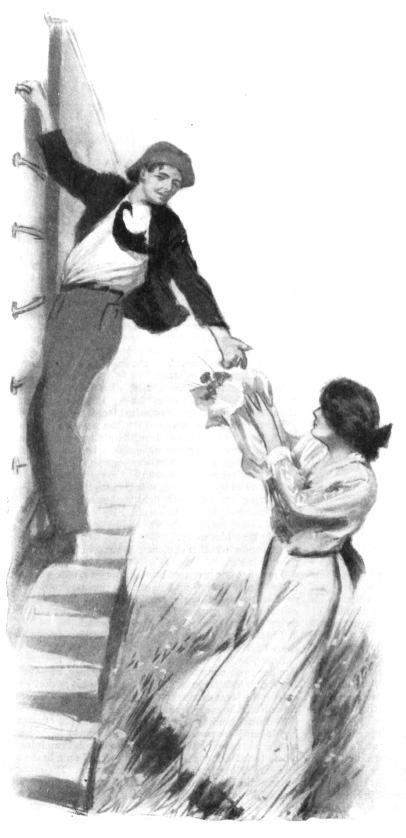
Though he waved his hand at the children who came out to watch the train go by, he dared not wave at the girl of the Farm of Windmills. She was sacred; he identified her with dreams and put her in a place apart. Some day, he felt certain, he should miraculously meet her; he would speak to her in a high-flown antiquated manner, like the magazine stories about pilgrims and tapestries, with words like withered roseleaves. He would not say Gee! to her; nor Gosh! — not once.
For two years he watched her grow up. He saw her dresses lengthen, her shoulders straighten, as she passed through flapperhood — a little, light-stepping image of coming womanhood. In winter she came from the white schoolhouse; and he was jealous of the louts who carried her books or threw snowballs at her. Sometimes she waited at the grade crossing for the train to pass, and her delicate cheeks were touched to color by the cold, as sunset makes rosy the snow. He knew all her gestures, and from them knew her soul.
During these two years Chris’ mother died and he moved to a barren boarding house in Ferguston. He met few people there, and gradually the girl of the farm came to be the person whom he knew better than anyone else in the world, though her name, her voice and her thoughts were all unknown to him. And she was not merely his friend, but his guide. Had he been living shoddily she would have regenerated him. Chris was technically a good young fellow. Yet he did waste too much time over Kelly pool; he spoke muddy English; and it was mostly in his imagination that he did all this reading of which he was so proud.
Now, under her silent influence, he laboriously dragged himself through book after book. He made jerky, youthful efforts to speak quietly, move graciously. With youth’s faith in itself he cheerfully started out to become entirely perfect, so that he should be ready to meet her. Every time he cursed — he cursed, all right; you do, if you hook up cars on a slippery track — he blushed exceedingly and thought of how hurt the girl would be. He was very sentimental. Yet he was a promising young brakie. Not the great John Gorman himself could open a switch more quickly, though John was mighty among brakemen.
The third summer, when the girl made-believe no more, but, with her dress properly tucked in about her ankles and her head resting on her hand, read and read in the hammock under the willows, Chris began to think of her as not merely a playmate but as a woman whom he loved man-wise. She must have been eighteen; a white little princess. He fancied that her arms, as she bared them in work about the barnyard, were fine-textured as silk.
Then, in September, she disappeared from the farm. He watched for her anxiously and for two weeks would not admit that she was gone; but he imagined dreadful things. She was old enough now to be married. Perhaps some man whom he had never seen, some perspiring, heavily jocular citizen of Wakamin, had taken his silver girl. Or was she sick?
He saw her, at last, at a distance, on a street in Joralemon. He casually asked his old friend, the all-knowing bus driver, whether that girl was not the daughter of Doc Lingard.
“No,” said the driver; “she’s some girl from out of town that’s going to high school here. Don’t know her name.”
Chris was vastly content; very proud of her. He decided to attend high school with her. His own schoolwork had ended with the eighth grade. He solemnly bought the books for Freshman and Sophomore classes and turned his room at Ferguston into a private school, sternly conducted by Professor Chris Thorsten, evenings, when he was back from the road.
He read history, algebra, physiology; and in Tennyson’s Idylls of the King had reason to suppose that his fantastic love was not necessarily so idiotic as John Gorman, the swing brakeman, would have maintained. He became so precise in speech — so nearly precise — that Gorman jeered: “Gosh! You must have swallowed the dictionary.” And Chris had to throw in a few “hells” to show that he meant no insult by trying to speak correctly.
He pretended that in his town, miles from her, he was actually studying with her, sharing the same book. He could feel one elbow grind on the table; feel the other arm, as he turned the leaves, faintly touch her side. The light would slide down her smooth cheek to her throat as she glanced from page to page, he imagined.
It was in his high school reading that he first learned the story of Dante — which he innocently pronounced Dant. He traced himself in the lonely poet; the girl of the farm in the deathless Beatrice. All winter he asserted to himself that he was the exiled Italian, wandering down the damp corridors of ancient palaces. He was not, though. And the Minnesota winter was not really a season of rains and poetic melancholy.
Chris, on the cars, was a lumpy figure in a duck-lined Mackinaw coat and huge red mittens. Two cars away he could scarcely be seen through the blizzard. When the northwest gales stopped, and the sun glared on miles of snowdrifts that stretched from the track to the steel-blue sky, the thermometer dropped to forty degrees below zero and the coupling pins stung his hand even through mittens. But he was Dante and also a high school prize winner, and declined to admit that he was cold.
It is probably true that Chris Thorsten’s poetry was inferior to that of Dante; but, as regards practical common sense, he was a genius compared with that self-satisfied, wireless lover. He knew that if he was ever to care for the girl he had to climb beyond brakemanhood. He saw no reason why he should not be General Traffic Manager some day; but he saw plenty of reasons why he was not likely to be, unless he got into the General Offices — which the railroaders call the white-collar route. He added stenography and typewriting to his studies, and read books — one book, anyway — about railroad finance and management.
The girl seemed so constantly with him that for a second he was not surprised when, on a May day — with the poplars and silver birches in foliage, the prairie sloughs like fields of bluebells, and lady-slippers out in the tamarack swamps — he saw her again, standing between the willows, at the Farm of Windmills. Instantly his hand shot out as though it was a live, winged thing flying to her. For the first time in nearly four years of a love like worship he was waving to her. She responded — a flick of her hand; a slight turning of her shoulders in her white blouse; while the sun caught the movement of her piled brown hair.
He stretched out his arms, standing on a box car, revealed to her as a figure against the cornflower sky, in the attitude of crucifixion — and of utter happiness. His floppy corduroy trousers and black sateen shirt and black slouch hat fluttered buoyantly as the breeze whisked about him.
He wanted to tell someone all about it; but — the conductor chewed tobacco, and the front brakeman wore a celluloid button stamped, “Kiss me, kid!” and John Gorman had a laugh like a sick horse. Chris compromised by shouting, “Great day, by golly!” to the operator when they reached the Wakamin Station. By which he meant to indicate that the year was at spring and his sweetheart slim and winsome and kind; that life was exciting and the Wakamin Station more glorious than all the stations of London or Rome or fairyland.
In this last he was absurdly exaggerating. The Wakamin Station presumably answered the purpose, but it was not esthetic. On the splintery platform, so sun-soaked that the planks smelled of pine forests and resin oozed out in amber drops, one case of empty beer bottles reposed desolately. Under the platform all the homeless newspapers and orange peels of the neighborhood found a resting place. Yet here Chris shouted his happiness.
He waved to the girl again the day following. She did not respond. The third day she was not in sight. The fourth, she fluttered a handkerchief at him. The fifth, she was reading in the hammock and did not look up. The sixth, he was off duty. The seventh, she did not appear. The eighth, she answered with a gesture of her delicate fingers like the waver of lace in a draft.
So it went for two weeks, and he tried to assay her replies scientifically.
Once, when they were sidetracked for two hours, John Gorman caught him plucking the petals of a daisy and growling: “Loves me — loves me not!” Chris had to lie vigorously — that he was trying to guess his chances of winning Doc Nickerson’s shotgun raffle — to save himself from the reputation of being a young lover.
There is probably no legal reason why all lovers should not be confined in asylums. For more than two weeks it did not occur to Chris that, though he knew the girl better than he knew any other person in the world, and though she had waved to him, yet there was no reason why she should distinguish his greeting from any other careless gesture by a passing trainman.
When he did forget moonshine long enough to make this revolutionary discovery, he spent an evening at Ferguston in composing a bouquet for her. He discerningly stole daffodils from his landlady’s garden, and from Old Man Bromenshenkel, the vegetable man, he bought irises, purple and golden; and he wrapped the bouquet in silver-gilt paper, with all of the lover’s fumbling anxiety over his first gift. Thrice he unwrapped it — once to see whether the stalks were fastened, and once to put in a note, “Greetings from a lonely brakie!” and once to remove that note, which he rended and utterly destroyed.
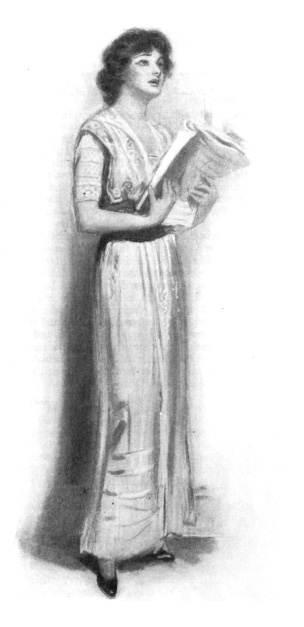
Next day it was his trick on watch in the caboose cupola. He thrust his arm — unromantic in its sleeve of blue flannel fuzzy with lint — through the window, whirled it violently, and let the bouquet fly toward her. The girl, not very poetically engaged in feeding pigs, stared perplexedly and did not give response. The bouquet landed in the weed-filled ditch beside the track.
When the train passed next day Chris saw the gilt paper of his gift still lying among the weeds, a forlorn thing, with the gay cover smashed from its fall.
Hurt, amazed, he stared at it, then peered at the farmyard. As in her childhood days, the girl was reading on the airy platform among the willow boughs; but round her slim, fine legs a long skirt was swathed and her fingers pressed her temples as though her eyes were a little tired.
She looked up, the sunlight that came through the leaves checkering her hair with light and shadow, and let her quiet glance dwell on the train. He curtly saluted her, hand to forehead, and she waved just as the train exasperatingly bore him away.
“I wonder whether she knew it was a bouquet for her?” he meditated.
That night he prepared another bouquet of the brightest irises he could find, and he flung them unwrapped. He saw her pointed chin rise until her throat shone above her collar as, with surprised eyes, she followed the arc of the flying flowers. She started to run forward.
The flowers were gone next day, and from the tree house she peeped shyly at the train.
Roses, as they came into bloom, sweet peas that were like her fresh cleanness, pansies and peonies, he gave her. He had to hide them in his lunch pail, in his pocket — even among the farm machinery loaded on flat cars — to conceal them from the other trainmen.
She was standing by the fence one morning of passing; her fingers were nervously pinching the rusty barbed wire; with a perturbed, lovely excitement she was examining the whole train. He was impudently perched on a brake on a box car. He sprang up; his hat came off. His cropped, broom-colored hair and the pleasant evert tan of his Norse face had something of the sturdy boyishness of a young knight. He awkwardly bowed to her, and from his pocket he brought out a careful though slightly mussy little bunch of pansies. A smile transformed the searching seriousness of her face; then, as though she were again the little girl, she ran away.
She waved to him always after that. Once or twice there were girls with her, visitors apparently, and she motioned with a secrecy that she evidently enjoyed. He saw her studying him from the willow, her little high-crowned head cocked on one side.
He knew now that her greetings were for him alone. Once, when he was in the cupola, he saw the front brakeman signal to her. She stared at the intruder and did not move; but when the caboose came opposite her, and Chris waved, she was like one waking from a brown study.
At last he sent her a book by his aerial post — Keats’ Poems, in a red-line edition — and in it this note:
Please let me send you this book. For years now I have been watching you read; I guess there are not many girls along here who read. I love to read too; even a brakie loves to read sometimes. I read Dickens and Hall Caine, and lots of magazines. So I wanted to send you this book. If you like it just wave it once as I go by, and I will know I have not been fresh in giving it to you, because we both like to read. Honest, I do not want to be fresh. I have got all kinds of respect for the lady who reads such interesting-looking books in the willows.
YOUR FRIEND OF THE FREIGHT TRAIN.
P. S. The librarian of the Saint Hilary Public Library — she is a highly educated woman — says she is sure you will like this book. It is fine poetry. I do not read much poetry myself, but I appreciate it.
He was gloomy after giving her the book. Perhaps she would scorn it. He pictured her with eyes flashing, foot stamping — like the heroine of Humble Hearts, which had played under canvas at Ferguston; he fancied her exclaiming: “Sir, how dare you!”
Next day she stood at the fence again, flushed, agitated, her eyes shining. As he came abreast of her she pulled the book from under her arm, hesitated, then waved it timidly.
After two weeks, during which she did not come so far as the fence, though he sent her another book, he looked ahead and saw her down beside the track, balancing a ball of paper and watching intently. She motioned up at him with the bundle. He skipped down the iron ladder on the side of the box car and leaned far out, precariously holding the ladder with one hand, the other hand outstretched toward her, smoke and cinders storming round them both.
The train roared forward; he was carried toward her — was for the first time near her parted, expectant lips. She was holding out the bundle. He caught it, slammed it to his breast to hold it safe, while in the sudden jerk of the action he almost lost his grip and nearly fell from the ladder. He heard the cruelly grinding trucks. His whole body contracted with the fear of falling; but instantly he got hold of himself and over his shoulder bowed to her gracefully — that is, as gracefully as a man hanging with feet and one hand to a ladder on the side of a jouncing train, swinging with the motion, can reasonably be expected to bow.
As Dante would have opened a scroll from Beatrice, so a panting, dusty brakeman sat on a box car and undid the folds of a bunched newspaper.
There were shaggy russet dahlias setting off the purple of wild asters — and among the flowers this note:
Dear Unknown Friend:
Indeed I do love to read books, as you said; and I want to thank you many times for making my summer happier. It might have been quite a lonely summer if I hadn’t had somebody to sort of talk to as you went by. There are not many books round here, so I appreciated your thoughtfulness; and, oh, indeed, I did not feel you were fresh, like you said. I am going back to school. I leave this afternoon, but could not go without thanking you. I hope you will not have a bad winter; it must be hard on trains in snow. I will think of you there.
THE GIRL THAT READS.
“I will think of you there.” That was the phrase he kissed most frequently.
He studied her handwriting — the precise script of a woman who reads much and writes little. In the slender loops of the l’s he saw her own self.
She was gone; autumn had come. Two months later he was promoted to brakeman in the passenger service. He took up more keenly than ever his stenography and science of railroading and high school work.
At the Joralemon Station he saw a poster advertising a high school entertainment. His passenger run ended at St. Hilary, forty-odd miles from Joralemon, and he was tired when he reached there at 5:30 p.m.; but he caught the seven-seven train back to Joralemon. He saw her among the group marked by their silver-and-maroon banners as Seniors. Apparently she was completing her high school work in two years. He ached with the pride of that, and with his glory in her when she stood out in a frilly gown of white mull with lace insertions, her hair in a pompadour, and sang Oh, Promise Me! as a solo.
It was the first time he had heard her voice. It was deliciously cool and young; in it was the sound of evening leaves.
Perhaps she would have seemed to the outsider, to the believer in types, merely a lithe, clean, rather pretty girl, in a provincial frock, singing a fair schoolgirl soprano; but her public appearance added awe to Chris’ love.
Another May day — and she was back at the Farm of Windmills.
She could not know that he was in the passenger service. He ran down to the steps of the open platform, pulled off his semi-military cap, waved wildly. She stared for a second — lovely and dreaming among the crabapple blossoms — and broke into quivering life as she waved back.
Most periods in all lives are times of drudging along day after unchanged day; of wishing that something surprising would happen. Such was that summer to Chris. He threw flowers to her and a few books; he knew the daily sweetness of seeing her and the daily agony of not hearing her voice. But nothing happened.
He was on the train bound south one hot September afternoon. He was opening ventilators and had stopped to talk with the Ferguston undertaker. He lolled on the arm of a seat near the front of the car, and as he talked he looked along the aisle. He saw a silk-clad ankle, sleek and smooth as a pigeon’s breast, a girl’s foot in a dull-leather pump, and the flounce of a blue skirt. He glanced up casually. His heart leaped! The girl — the girl! — sat four seats away, on the other side of the car, facing him.
She was transformed in a town suit of blue cheviot, and the stiff linen collar of that period contrasted with the girlishness of her demure head and ivory neck. She was looking away from him, her face in profile; he saw the wistfulness of her lips, the uptilt of her chin. She seemed — to him, at least — altogether a city girl, and the timorous deference of the small-town man to city clothes accompanied his noble deference as lover.
He was weak about the knees and wabbly at the pit of the stomach. He did not dare go down the aisle — speak to her. What could he, an ordinary trainman, say to the goddess? He fled to the baggage car, where he informed John Gorman, acting baggageman, that he had a peculiarly violent headache… Suppose she expected to see him on the train? Suppose even that, by a miracle, his absence disappointed her? Better that than reveal himself to her as a boor!
He looked out from the baggage car at each station. He saw her leave the train at Saint Sebastian and take the bus for the State Normal School, where the young ladies of Moore County are trained in fudge making, tennis, and the teaching of the young.
The winter was lonelier because he could not get himself to peruse Needlework, or the Organization of Beneficial Recess Play, with Lectures on the Planning of School Playgrounds, which were among the courses scheduled in the Normal School Catalogue. He could not pretend now that he was studying beside her.
He so savagely regretted not having spoken to her that he would start up from his chair to go to her. Next time, he swore to himself, he would be prepared to meet her. That motive became a religion, though he did express it by making foolish memos on report blanks — “Read poetry. Learn conversation. Mem. — Get new neckties.”
Spring! She was back! At last Chris told her something of his long devotion — in letters to go in books. As he wrote each letter he planned to go and see her at the farm; but it was quite suddenly, and for no visible reason, that he decided to take a lay-off the following Friday, deadhead to Wakamin, and drive down to the farm. He would at last explore the other side of all the houses he knew so intimately from the one side — see the old-fashioned garden in front of the white cottage; and see —
He did not know even the name of the girl. He would learn it now.
A tremendously bathed and imperially shaved and quite incomparably hair-brushed Chris, in a new civilian suit of ready-made blue serge and a stiff and shining new purple tie, hired a buggy at the Wakamin livery stable. The road south was dusty, but meadow larks sang on the fence posts, the wild roses were in full bloom, and the wheat had spread its exquisite pale green over the rolling prairie. Half a mile from Wakamin the road began to parallel the railroad track. Chris recognized the other side of things he had known for years. He was excited to find that the back of the World Harvester Company’s lone billboard concealed a pile of scantlings. He gasped:
“All these years I’ve seen that sign and I never knew there was anything on the other side!”
He was growing too feverish even to note farms that had always been hidden from him by woods. He would see her — now! What would she be like? He pulled the horse down to a slow walk. He had to get hold of himself. So he came creeping to the house just preceding the Farm of Windmills — the white cottage of the hollyhocks — only there weren’t any hollyhocks!
He had so clearly pictured the bright, prim garden which must flourish in front of the cottage that he stopped the horse and stared about to get the landmarks before he would believe that this was the cottage. It was. But as for the garden his imagination had filled with charming idlers — he beheld a dooryard of trampled flowerless earth, a litter of tin cans, a pigpen slushy with mire, mud spattered over the door, and a woman, shouldered and breasted like a man, slovenly in calico faded from blue to a weak white, wearily mauling clothes on a washboard.
He felt — literally — that he had been betrayed. He drove unwillingly up the hill that separated the cottage from the Farm of Windmills. Halfway up he stopped again and gave way to wretchedness. Would the Farm of Windmills — and the girl — disappoint him as the white cottage had?
He dared not top the rise — whence he could see her farm — and take even one glance. He slowly turned and lashed the horse toward Wakamin. He looked straight ahead at the road. He paid no attention to new aspects of the route. He did not believe in the other side of things — so he told himself that afternoon.
He waved to her daily afterward, but he did not send her flowers or books or letters — save once, when a week of rain, gloomy with approaching autumn, made him so lonely that he had to tell her how much he needed the comfort of seeing her. She came out in the rain almost every day; but he doubted himself now — he wondered whether she came out for him or because she was so bored that a passing train was a relief.
He was rolling down the car aisle somewhere south of Wakamin. He stopped dead — before a seat in which sat the girl. He had met her!
She was alone. She was staring straight at him. Her shoulders were thrust forward. Intensity was in her face. The fingertips of her right hand were pressing hard on the red-veneered seat arm — the hand like a wild thing, crouching, cowering. Very serious and somewhat frightened was her look. Chris stood, with palpitating heart, his mouth slightly open, his arms checked in mid-swing; so that one hand was held drooping in front of him. One leg remained bent at the knee, the foot poised on its toes.
For ten seconds they stared. He bowed, frigid with embarrassment. He could feel the vertebrae of his neck crackle with the stiffness of his bow. His absurdly outthrust hand fell to his side. All he could think was:
“Gee! How did she ever get on the train without my seeing her? Why, I never saw her at the station! Gee! That’s queer!”
She turned her head; looked away from him, through the window. He started forward, his head angrily high; yet he was unable to keep his eyes from her. Before he had quite passed she turned back to him, with a smile infinitely shy, a smile that begged him not to misconstrue its timid friendliness. He muttered:
“Oh, y-you’re g-going back to normal school. It’s — Jiminy, you’ve got a hot day for it!”
“Oh, yes; it is hot.”
Perhaps the words were not memorable, but her voice fulfilled all he had hoped for — a vital sweetness; youth’s passion for life. He was aware of its magic, though this was his addition to the brilliant conversation:
“Yes; sure is!”
He damned himself for talking to the true goddess about the state of the weather; but he could get himself to speak of nothing else. He was obsessed by the fact that she was wearing the same blue cheviot suit as a year before, though it was shabbier now, a sleeve flashing shiny underneath, as she raised her fingers to pluck nervously at her collar. A cuff had been darned with painful care.
He knew love’s sorrowing pity — that she, who was sacred and of fine silver, had to make secret economies; but it put her more on his level of plain human being, and as she nodded to his ridiculous “Sure is!” he sprang into real speech:
“Gee! It’s awfully hard to know what to say. Honestly — you’ll think I’m just a small boy if I tell you” — her smile was reassuring — “but I’ve planned for years what I’d say when I met you. All sorts of Smart-Aleck things. And now I can’t think of a single one of ’em!”
“I know!” He dropped on the seat arm beside her. “I know how it is,” she said. “I’ve wondered about you. I — I want to thank you — flowers and everything.”
“Oh, they weren’t anything. We’re coming into Joralemon — got to go out on the platform. I — oh, I don’t want you to think I’m forcing myself on you; but it’s just like I’d known you for years. And now you’ll be gone — all winter — won’t see you. But if you do think it ain’t quite proper for you to talk to a stranger — Oh, let me come back!”
In a voice thin and hesitating as a flute she said:
“Yes; come back.”
She flushed glorious red over her cheeks and throat, which above her low collar was bright and bare. She glanced away from him, down at her rattan suitcase.
At the Joralemon Station John Gorman came snickering up to Chris:
“Pretty little dame I seen you with. Takes a squarehead to pick out a good looker!”
Chris answered with terrible quietness:
“If you butt in, Jack, I’ll just nach’ly kill you!”
“Well, you don’t need to get so huffy about it. Who’s butting in?”
Gorman clumped away. Chris did not look at him. He was pantingly trying to decide what he dared say to the girl. He hastily outlined a number of remarks, good, sound, sensible remarks, about Keats and Dickens. As he reentered the coach he forgot them all in the thrill of actually having her there.
Some place between the station platform and her seat he conquered youth’s inability to face a big thing directly and seriously without capering. He had only one hour between Joralemon and Saint Sebastian Normal School. He came to her in a matter-of-fact way, and sat in the seat beside her. He said gravely:
“We haven’t much time. Can’t we tell — can’t we — ”
“Trust each other?”
“Yes!”
“I’ll try to.”
“Please do! Not spar ’round like a man and a girl flirting.”
“Oh, we must! I am going — I’m not going back to the normal school. My mother died when I was a girl and my father died last winter; and we haven’t very much anymore. My brother and I are selling the farm — what’s left of it. I’m going down to Nebraska, where my brother lives — to stay. I’m going to teach country school there and live with him.”
“Then I won’t see you at all next spring; not at all — not even then?”
“I’m afraid not.”
“Will you miss not seeing me next summer — a little?”
“Yes; I’m afraid I will.”
Her voice was so low he could scarcely hear it. She stared through the window again. For a second he laid his hand on hers, which rested nervelessly on her knee. Her hand was a holy thing, yet now he had the courage to touch it; she had spoken so forlornly that it would have seemed natural to take her in his arms and comfort her.
“Honestly, I’ll be — I don’t know just how to put it,” he said. “I don’t know how to tell you how glad I am if I have made the summers happier — Oh, I’m just talking words! All I can think of is, you’re going away from me; maybe never come back. Why, six or seven years now I’ve never gone by your farm without looking for you. I’ve imagined — Oh, I know you so well! I’ve watched you read and play and work; and then when you went to Joralemon I imagined you studying there
“How did you know I was there?”
“Saw you on the street and asked about you. Why, do you know when I found you were in high school I took up history and geometry, and the whole caboodle, so’s to be with you?”
“I don’t know — how did you take them up?”
He explained. He brought into the noisy car something of the white nights on which the girl and he had studied side by side. She listened, hesitated, answered:
“I guess maybe I’ve sort of made-believe about you too — ever since you first waved to me. I pretended you were my courier — like in a fairy book; that you brought me messages from abroad to my castle on the hill of glass. And then sometimes I thought of you as a railroad man; but I imagined you going clear out to exciting Western places. Once I got a timetable and learned the names of some of the places in Dakota and Montana where I pretended you went every day — names that made me fancy things, like Big Sandy and Galion and Wolf Creek and Silver and Homestead and Antelope. Is it very silly for a grown-up woman to make-believe? Think! I’m 21 now!”
“Why, honey, it just means that you and I have stayed kids instead of getting stupid. I guess I’ve always been waiting for you to play games with. So I’ve always been — oh, always been kind of good and — Oh, thunder! I don’t know how to say it without making it sound sissy.”
“I know… Oh, please tell me — tell me honestly: Am I doing wrong in talking to you like this? I did — I’m confessing so much that it scares me; it isn’t ladylike, I guess, but I have to — I did want to talk to you before I went away for the last time. So I took this train — intentionally. Was that wrong?”
“Honey, all I know is that if you hadn’t spoken to me I would have been so darn miserable for years — I never would have known where you had gone, or anything. I wouldn’t have had anything to live for. Oh, you couldn’t have done that!”
He caught her hand; his fingers interlaced with hers, disturbingly conscious of the softness of the flesh between her fingers. He looked at her piteously. As her voice, her fine brown eyes, everything about her, had told him she was indeed the girl he had hoped for, so perhaps something of the clean and dreaming boy who had devoted his soul to her worship was revealed in his Norse eyes and frank face. She did not withdraw her hand. She murmured:
“I worried about it all terribly; but I couldn’t go away without speaking to you if — if you wanted to.”
“You must know — look at me, dear! You must know how much I wanted to. Don’t you know?”
She did not answer. She glanced shyly at their linked fingers and tried to pull her hand away; but he held it tight, while his thumb stroked the silken warm hollow between her thumb and first finger. She peeped uneasily over his shoulder, as though she were afraid someone was watching them. Gradually her eyes came back to his, and she admitted:
“Yes; of course I hoped you might care.”
“I did! Honey, see here! We’ve — what is it they call it? — we’ve started fencing now. We mustn’t. Think how much we’ve got to do in such a short time. My division ends at Saint Hilary and we’ve got to get acquainted before then — and every so often, I guess, I’ll delay things by getting scared to think that I’m actually sitting beside you and talking to you. To you! Tell me — oh, tell me all about yourself.”
A quick scuttling to cover is more characteristic of lovers than is frankness; but the pressure of time kept these babes in the woods from the unhappy evasions and recriminations with which most lovers fill up evenings for a year or two.
They bravely started out to probe each other’s soul. They spoke with a most commendable gravity of books and music. She asked him who his heroes were and he was immensely pleased with himself, because he had thought that out long before and could answer offhand: “I admire Jim Hill, because he’s a great railroader; and Dante, because he was a great lover; and Lincoln, because he was a great man.”
They really made a creditable effort to be lofty and impersonal according to the best standards inculcated in the normal school; but he would be asking: “Were you glad the first time I waved to you?” And she would inquire: “Were you excited when you saw me standing down there right by the train, with a letter for you?” Such important topics as the church he attended, and what she really thought of the aesthetic value of Mademoiselle Mary Pickford of the films, were frequently sidetracked by such interruptions as this: “Oh, sa-a-ay — tell me: What is your house like in front? And I’ve always wanted to know whether that brick building is a milkhouse or a smokehouse.”
Their eyes held each other. He touched her hands, marveling:
“I can’t believe you’re really here; that this is — But, gee! I knew your hands would be like this — fingers sort of pointed. And I always did think your eyes would be like maple trees on an October afternoon — and they are! Gee! I’m almost as bad as one of these here poets; but I can’t help it.”
“Oh, you mustn’t!” she whispered and listened for more.
He had to leave her at each station, but their talk hung suspended, like a hummingbird over a honeysuckle. His absences made them more conscious of the cruel race that time was running with them.
The barren outskirts of Saint Hilary approached. It seemed as though the passing country was galloping faster and faster, to terminate their hour of glory. With a hectic urgency he demanded:
“We’re almost at Saint Hilary. The train changes crews there. I have to get off. We can’t separate now! We’ve been waiting for this for years — I have, anyway. I’d go on to Minneapolis with you, but I’ve got to go out on an extra run tonight; several train-men on the division sick. There’s — How much time’ve you got in the city before your train starts for Nebraska?”
“About four hours.”
“Then listen! You get off here at Saint Hilary. I’ve got about three hours before I start out again. Two hours from now there’s a train on the Grand Pacific — parallels the M.&D. to Minneapolis. You’ll have plenty of time to catch your train this evening. I know the G.P. crews and I can deadhead you through.”
She looked curiously shrunken, smaller and younger, in her alarm.
“Why — why — I couldn’t — ”
“You could! Quick! Darling, think quick! You’ve known me for years. Look at me! No time to be polite. We’ll regret it all our lives if you act like a prissy schoolma’am. Do I need to swear I’ll protect you? Look at me! You know this is the biggest thing in your life, like it is in mine. I can see it in your eyes. Come!”
She was crying, her fingers pressing her throat until the flesh round them turned from even brown to blue-white. The train was entering the Saint Hilary Station. She had not answered.
“Quick!” he begged. “Won’t you be lonely for me — ’way off in Nebraska? Won’t you remember my flowers? There won’t be no one that I’ll want to throw flowers to!”
He stooped for her suit case. He seized her hand — its small whiteness disappeared in his hard paw as though it had been swallowed.
She wearily rose. He guided her down the aisle.
They stood on the station platform, shy, awkward, with nothing to say, as the train pulled out. Once she started toward it. He put his hand on her arm gently and she stopped, still eyeing the train. As the last car fled from them, its rear door and windows like the square nose and eyes of a leering face, she peeped at him, deprecating, appealing.
“Gone,” he said. “Sorry?”
“No, not now… It was mean of you to remind me of the flowers. What could I do after — What is your name?”
“Chris Thorsten. Honey, you aren’t afraid now, are you?”
“Not anymore, Chris — dear. You’ve made me pretend about you for so long now, that I guess you’re my oldest friend. And don’t you want to know my name?”
“Oh, your name. Oh, that’s all right, we’ll change it!”
She nodded absentmindedly, then blushed so furiously that she could scarce answer when he added with sudden laughter:
“Gee, I’ve clean gone and forgot to propose, and all along I’ve been intending to propose very next time we met.”
His laughter was that of a man who has found glorious happiness — not of a wistful boy nor of a morose Dante.
You can see for yourself, he didn’t live ’way off in Arcadia or Japan, so of course he wasn’t a romantic type.
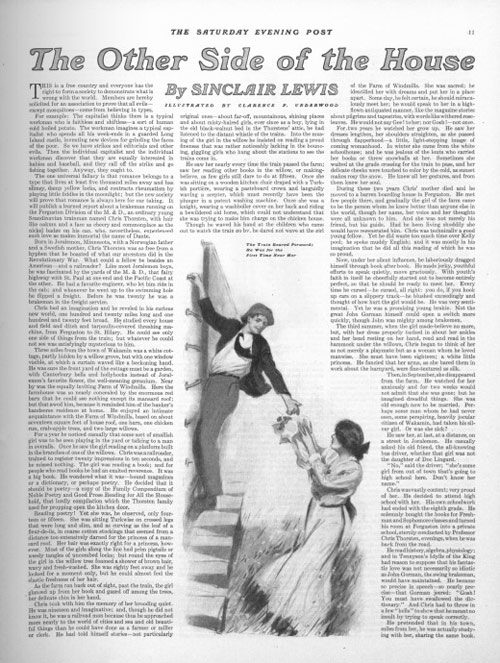
The Company that Nearly Brought Down Our Country
Science teaches us that whatever goes up, must come down. Myths teach us that Titans fall. And history is full of warnings, indicators that can predict future success or failure based on the patterns of previous behavior. Sometimes, all of those lessons can be applied to a situation, particularly one that’s dire enough to be studied, and learned from, and potentially avoided in the future. That’s the case with Lehman Brothers. Before 2008, they were the fourth-largest investment bank in the United States, and had been in business for more than 150 years. By September of 2008, they would declare bankruptcy with the largest filing in U.S. history, shaking the world economy and unveiling a tangled web of toxic assets, bad decisions, and litigation. What happened?
To understand how deeply woven Lehman had become in the financial fabric of America, you have to look at its origins. Lehman got its start as, of all things, a dry-goods store in 1844. Founded by Bavarian immigrant Henry Lehman as H. Lehman in Montgomery, Alabama, the store became H. Lehman and Bro. when Emanuel Lehman arrived in America. Another brother, Mayer, arrived in 1850, and the business was renamed Lehman Brothers. The brothers got involved in commodities trading when they began accepting raw cotton as payment at the store. They started a second business focusing only on trading, and it quickly outpaced the store as their prime source of income. Henry died of yellow fever in 1855, but the remaining brothers kept the commodities business going. Following the cotton trade as it shifted the center of its orbit to New York City, the brothers opened an office there in 1858.
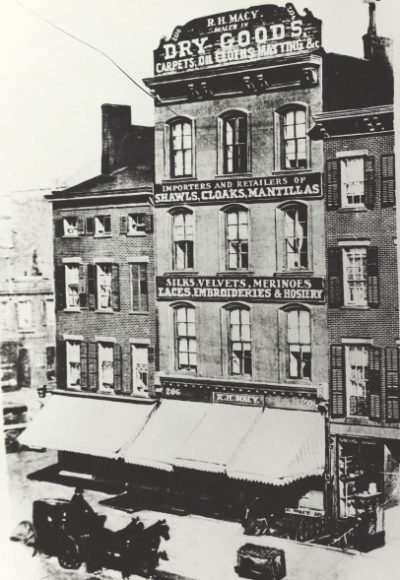
As that business grew, it took on other markets, like coffee, and expanded into railroad bonds. The company participated in financing the reconstruction of Alabama after the Civil War. By 1889, it had underwritten its first public offering. In 1906, Phillip Lehman, Emanuel’s son, led the firm to partner with Goldman, Sachs & Co. to bring General Cigar Co. to market. Through the ’20s and ’30s, the firm underwrote dozens of further issues, including those for F.W. Woolworth Company, R.H. Macy & Company, B.F. Goodrich Co., and The Studebaker Corporation. They survived the Great Depression in part by shifting their attention to venture capital. They underwrote the initial public offering of DuMont Laboratories ( the first maker of televisions), RCA, and companies in the oil industry, including Haliburton. In a sense, Lehman became big simply by being big and thinking big; they enabled the launch of titans of industry and brands that became household names.
By the financially turbulent 1970s, Lehman embarked on a series of mergers and acquisitions to stay alive. They acquired Abraham & Co. in 1975 before merging with Kuhn, Loeb, & Co. in 1977. As a result, the newly rechristened Lehman Brothers, Kuhn, Loeb Inc. became the fourth-largest investment bank in the United States. Shearson/American Express bought the company for $360 million in 1984, and they in turn merged with E.F. Hutton & Co. in 1988. All of this consolidation guaranteed that (the again renamed) Shearson Lehman Hutton would remain a powerful institution in the marketplace, but it was also emblematic of the enormous financial power being concentrated into the hands of fewer and fewer firms. By 1994, American Express spun out Lehman Brothers Holding, Inc. in an IPO. The chairman and CEO would be Richard Fuld, Jr. He would turn out to be their final chairman and CEO.

The pending 2008 financial disaster was presaged by an even larger American tragedy. During the attack on the World Trade Towers on September 11, 2001, one Lehman employee was killed and the three Lehman floors in the Towers were destroyed. When the Towers collapsed, the debris rained serious damage upon neighboring Three World Financial Center, which housed the majority of Lehman’s global operations. Over 6,500 employees had to be relocated. The following month, Lehman bought a 32-story building from Morgan Stanley for $700 million; that, along with expanded grounds in Jersey City, would be the home for the company. Lehman found itself starting the millennium with serious losses.
Just prior to the attacks, in 2000, Lehman began making moves in mortgage origination. They bought BNC Mortgage LLC, a subprime lender, to join an earlier acquisition, Aurora Loan Services. Subprime lending, in theory, allowed people with less substantial credit to secure loans so that they could buy a home. By 2003, Lehman ranked third in loans and had made more than $18 billion from them; the next year, they passed $40 billion. BNC and Aurora were lending an astonishing $50 billion a month by 2006. At the outset of 2008, Lehman’s assets were valued at $680 billion; however, they only had $22.5 billion in firm capital. These were dangerous waters in which to tread, as market fluctuations could put their entire structure in jeopardy. Even a small loss in real estate value at that point would have a massively detrimental effect to the business.
Things had begun to take a negative turn in 2007 when, as TheStreet.com put it in the August 22, 2007 piece by Laurie Kulikowski, Lehman “amputate[d] their mortgage arm.” That’s because Lehman closed BNC, a move that cut 1,200 jobs. Lehman wasn’t alone. Other lenders were closing as the subprime mortgage crisis began in earnest. Housing prices began to fall after a 2006 peak, but homeowners found themselves unable to refinance loans; lenders wouldn’t work with people on loans for homes that were suddenly worth half or less of the original value.. Institutions had been lending larger and larger amounts of money to borrowers with weak credit histories; in turn, those borrowers struggled to make payments. Lenders began absorbing losses due to defaults and delinquencies. At the news of BNC’s closure, Lehman’s stock only fell 34 cents. It was about to get much worse.

Matthew Notowidigdo, an associate professor of economics at Northwestern University, worked for Lehman prior to 2008. He says, “I met some of the smartest people I’ve ever worked with. Even when I decided to leave my job to go to graduate school, I thought that there was at least some chance I would want to return after I had finished my degree. I really didn’t see a Lehman bankruptcy in the cards.”
Notowidigdo wasn’t alone in that view. While it was obvious to observers that Lehman had experienced some difficulties, it seemed absurd prior to late 2007 that they would be in that much trouble. In fact, Notowidigdo indicates that one of the common refrains about Lehman’s troubles might not be entirely accurate. He says, “I think the idea that subprime lending and predatory lending played an important role in financial crisis is something that economists are still debating in the pages of their academic journals . . . Surely subprime played a role, but I am increasingly seeing papers arguing that it may not be the predominant explanation for the housing boom and bust. That is, it might make more sense to think of the 2008 crisis as originating from a widespread housing bubble, rather than a “subprime-fueled” housing bubble.” Again, that bubble comes from when housing values soar to unexpected, even potentially unreasonable, levels in the market, and then decline from unsustainable highs.
Robert Johnson, Professor of Finance for the Heider College of Business at Creighton University, also weighed in on the causes. He says, “Lehman, and many other financial institutions, became heavily involved in mortgage securitization – that is, the packaging of mortgages into various types of securities (called mortgage backed securities) and selling them to primarily institutional investors. In the run-up to the financial crisis, originating mortgages, packaging them into mortgage backed securities, and selling those securities was an extremely profitable business.” However, that kind of thing can go too far. In 2007, Lehman underwrote more mortgage backed securities than any other firm and had an $85 billion portfolio of mortgage backed securities.
Still, in 2007, Lehman was painting a rosy picture. As global investment bank Bear Stearns began to circle the drain, based in part on the failure of two of their subprime mortgage funds, market observers started to speculate that Lehman might be in the same boat. However, Lehman’s first quarter conference call indicated a profit of $489 million; while other financial services firms posted losses, Lehman’s stock rose 46 percent on the back of the call.

Here’s where Lehman’s fall began in earnest. By mid-2008, Lehman faced massive losses from the housing bubble and subprime mortgage crisis. The loss came primarily from Lehman’s refusal or inability to dump lower-rated bonds, meaning that they held on to things too long until they lost their value. Johnson says, “What happened was that home delinquencies in the subprime market rose dramatically and spread to the rest of the U.S. housing market. The mortgage backed securities Lehman held in its portfolio fell dramatically in value and the firm became insolvent and was forced to declare bankruptcy when no willing suitors could be identified.” As reported in The New York Times on August 22, 2008, Lehman’s loss by the second fiscal quarter was $2.8 billion; this necessitated a sale of $6 billion in assets and a reduction of over 1,500 jobs.
Erin Callan had been Lehman’s CFO for six months, and she was the one on the upbeat first quarter call and the bleak second quarter follow-up. Shortly after that, she stepped down. In September of 2008, she told CNN Money, “Nobody thought [bankruptcy] was a possibility. In other downturns, market conditions improved. The firm had a history of coming out on the other side and doing well. But the harsh reality of this environment is that asset prices were declining at a shockingly fast pace, so the firm ran out of time. Raising money to address declining prices wasn’t going to work.”
Korea Development Bank explored buying the bank, and those reports caused Lehman stock to close up 5 percent on August 22, 2008. However, when it became clear that KDB couldn’t find other partners, the deal did not materialize. When word got out that the takeover had stalled, Lehman stock dropped 45 percent on September 9. The ripple effect caused the S&P 500 to go down 3.4 percent and the Dow to drop 300 points. On September 10, Lehman announced a loss of $3.9 billion; stock dropped 7 percent as they said they would sell off their investment management piece. One day later, the stock dropped another 40 percent.
Other forces started to come into play. Bank of America and Barclay’s emerged as potential buyers, but both passed. By September 15, what had once seemed impossible became the inevitable. Lehman Brothers filed for Chapter 11 bankruptcy.
Notowidigdo acknowledges that the bankruptcy and what led to it can be hard for the average citizen to grasp. He says, “Many of [Lehman’s] investments were in the mortgage market, which left the firm vulnerable to sudden drops in housing values. Just as a homeowner can become ‘underwater’ when they start with limited amount of home equity and then their housing value drops significantly, Lehman rapidly went ‘underwater’ and had to file for bankruptcy. The firm just wasn’t sufficiently protected against a ‘housing bust’ scenario.” Ultimately, the major reason that the U.S. government didn’t step in to save Lehman Brothers is that it had just too much debt to save; in other bailouts, the government has gotten some type of payment back. They didn’t foresee that being the case with Lehman Brothers.
The numbers speak for themselves. The Lehman bankruptcy filing indicated that the company had bank debt of $613 billon, bond debt of $155 billion, and $639 billion in assets. Other Wall Street entities and the Federal Reserve got involved, with the other firms engineering assistance for Lehman’s liquidation, and the Fed taking “lower-quality assets” for government loans and assistance. Lehman’s shares dropped an additional 90 percent on the day of the filing. The Dow Jones would close down more than 500 points, its worst single-day drop since the 9/11 attacks. On September 17, the New York Stock Exchange issued a press release that they had “determined that the Company is no longer suitable for listing.”

The fallout lasted for years. In the wake of the filing, the various pieces of Lehman Brothers got carved up by buyers. Barclay’s picked up most of the North American operations, for example, and Nomura Holdings of Japan purchased the Asian and European divisions. The collapse shook the world economy and eventually led to the U.S. government intervening in the form of The Emergency Economic Stabilization Act of 2008, which created the Troubled Asset Relief Program (TARP); the $700 billion bailout bought toxic assets in an effort to prop up a financial system that had been riddled with losses.
All of the action around Lehman Brothers reintroduced the phrase “too big to fail.” The phrase first gained popularity in 1984 when it was invoked by Congressman Stewart McKinney during the failure of Continental Illinois National Bank and Trust Company, a financial implosion that led to the Federal Deposit and Insurance Corporation seizing the bank. Notowidigdo says, “It’s hard to imagine a situation where we suddenly decide that Facebook is ‘too big to fail,” for example. This is related to a view that many economists have that ‘banks are special’ — that is, the banking system is so highly regulated precisely because economists believe that bank failures are thought to impose particularly large costs on the economy. And the bigger the bank failure, the bigger the economic costs and collateral damage, which then logically becomes “too big to [let] fail.” Indeed, the government did hesitate to intervene on behalf of Lehman Brothers; after witnessing the economic impact, the Treasury did step in with an $85 billion loan to AIG, which was also about to fail.
Dylan Ratigan explains the Repo 105 practice on The Dylan Ratigan Show from March 12, 2010.
In the aftermath, a number of other issues came to light. The court-appointed examiner Anton R. Valukas revealed his findings of a year-long investigation in 2010. Among his observations was the fact that Lehman indulged in a practice called Repo 105, a bit of accounting prestidigitation that allowed the firm to switch out assets for cash. Lehman did this prior to publishing their financial statements, giving the appearance that the company had made a sale rather than a planned repurchase of their debt obligations. In Lehman’s case, they did this swap in a way that portrayed a better cash position, one $50 billion greater than the actual situation. Former MSNBC host Dylan Ratigan discussed this maneuver on his Dylan Ratigan Show in March of 2010; he called the procedure a fraud and compared it to trading a pile of cash for an empty garbage can so that everyone else would see you with cash, not realizing that all you had was an empty garbage can.
That same year, journalist Matt Taibbi wrote a piece for Rolling Stone called “Wall Street’s Naked Swindle.” Taibbi pointed out that a technically legal short-selling practice had been employed on a large scale against both Bear Sterns and Lehman Brothers. This atmosphere of betting against the market was described in great detail in Michael Lewis’s 2010 book, The Big Short: Inside the Doomsday Machine, which covered those that saw the bubble and collapse coming and made moves that allowed them to profit from the events of the financial crisis. While it might be argued that the protagonists of the book and subsequent film version were played in a positive light, these practices certainly threw wood on the fire of the impending collapse.
Today, some observers are sounding alarms that we might be in for another recession. On a June 29 installment of All Things Considered on NPR with Chris Arnold, the discussion hinged on possible warning signs, including the possibility of a trade war built on tariffs and other practices. On the program, David Kotok, the chief economist with money management firm Cumberland Advisors, criticized the White House’s trade policy. He said, “You don’t invite compromise when you scream at the other guy . . . What’s the policy of the United States? Is it [Peter] Navarro? Is it Mnuchin? Is it Wilbur Ross? Is it Larry Kudlow? Is it the president, who changes his mind back and forth every day? How do you proceed?” That uncertainty has some analysts spooked, as does the yield curve that measures debt in the market; if long-term rates dip as low as short-terms bond rates on the curve, or what is called a flattening curve, that frequently demonstrates that conditions are favorable for stock losses, if not a recession.
Johnson points to other problems that could lead to a similar disaster. He says, “Mark Twain is reputed to have said that “history doesn’t repeat itself, but it rhymes” and to that extent we may have a similar crisis brewing in the student loan arena. Student loan debt is now the second highest consumer debt category – behind only mortgage debt. Over 44 million borrowers hold $1.52 trillion in student debt. Over a half a million borrowers owe more $200,000 in student loan debt. Rising student debt and increasing default rates can have a devastating on individual lives and the underlying economy.” He also notes that further actions by the Trump administration, including rolling back or weakening oversight rules that came in after the Great Recession.
Notowidigdo alludes to the fact that there’s still some debate about what caused the 2008 crash, and what might cause one now. For his part, he was doubly fortunate when it came to his Lehman exit. In addition to leaving the company before its collapse, he sold some of his Lehman stock to buy an engagement ring – but not all of it. “I really thought Lehman was going to be very profitable company for a very long time.”
Despite Notowidigdo’s optimism, Lehman Brothers didn’t survive. Lehman Brothers may have only been a piece of the Great Recession, but their fall can still serve as a stark reminder for everyone else of what not to do.
Selfless Surgeon
On the day that changed 7-year-old Boi’s life, he arrived at a thatched-roof hospital near his home in Mali, red dust clouds swirling from his uncle’s motorcycle. A softball-sized tumor bulged from Boi’s right cheek. The tumor had dislocated his jaw and disfigured his face, pushing his elongated mouth past his chin. He could barely drink water. Without surgery, the growing tumor would soon block his airway.
Tammy Neblock-Beirne, M.D., was in Mali with the Medical Missions Foundation when she met Boi (pronounced “Boo-uh”). MMF sends volunteer doctors and nurses to underserved communities around the world, and Neblock-Beirne — a general surgeon with Saint Luke’s Health System in Kansas City — was on a scouting trip, but also performing minor operations for another organization. Boi sat patiently as she examined him.
“He looked at me with his huge brown eyes,” she says, “and a big tear rolled over the tumor.”
She turned to Abigail Hayo, an MMF mission coordinator, and they cried, and they both knew: We need to help this child.
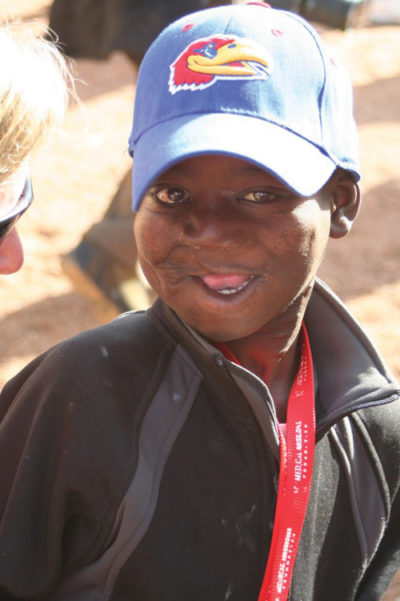
When they returned to Kansas City, Neblock-Beirne contacted local specialists, urging them to help, while Hayo made travel arrangements for Boi and his father and worked with the local congressman to secure visas. Three months after they met Boi in Mali, he arrived in the United States. A 10-surgeon team at the University of Kansas Medical Center conducted a grueling 24-hour operation to resect the tumor and rebuild his face. Neblock-Beirne found herself in an unfamiliar role: Worrying instead of operating.
“I was a mother sitting in the waiting room for 24 hours, wringing my hands,” she says.
Boi was in intensive care for two months and spent the summer recovering in Kansas City. April 2018 marked the 10th anniversary of that first procedure (he’s also undergone five follow-up procedures), and today, he’s a healthy, happy eighth grader who loves video games and soccer and speaks three languages. He spent the summer of 2018 in Kansas City with his two honorary American moms and their families, as he’s done every year since his surgery.
“Our kids and Abby’s kids treat him like a little brother,” Neblock-Beirne says. “He and my husband are best buddies. We love him.”
She never imagined her life would change so dramatically when she first volunteered with MMF in 2005. Since its formation in 1996, MMF has helped more than 63,000 patients in 14 countries (it also runs health screenings for inner-city residents of Kansas City). Neblock-Beirne has made nearly 30 trips — about three missions a year — to countries such as Romania, Vietnam, Panama, Guatemala, and Uganda, frequently serving as medical director and working 15-hour shifts.
“She’s usually the last one out of the operating room,” Hayo says. “She thinks, ‘I have skills and that’s what I’m here for, and I’m going to help as many people as I can.’” The pace can be both exhilarating and exhausting. “You couldn’t keep it up for more than the four or five days that we work,” Neblock-Beirne says. “But it’s also energizing. When you’re doing surgery, you get so focused that you lose track of time. You could be standing there for four hours and think it’s been one.”
That work ethic comes from her upbringing in small-town northern Missouri. She grew up on a farm, but even as a child, Neblock-Beirne wanted to study medicine. She started as a candy striper, attended nursing school, and worked in ICU nursing before becoming a surgeon, specializing in breast cancer procedures.
In developing countries, Neblock-Beirne’s patients frequently have zero access to healthcare. Some have endured hernias and other painful conditions for nearly 15 years. In Guatemala, a woman recently traveled five hours by bus for a bladder procedure.
“So many of the surgeries would be routine here in the United States,” Neblock-Beirne says. “Over there, the people are so grateful. It’s humbling. It’s what keeps you going back.”
Patients also appreciate her soothing demeanor, which transcends language barriers.
“Her bedside manner is incredible,” Hayo says. “In Mali and Uganda, women come in with these goiters the size of grapefruits. I can’t imagine what it’s like not speaking the doctor’s language and not knowing what’s going to happen. Tammy talks to them through translators, but she always has her hand on them. She has this calming, peaceful presence.”
The need for help can continue after the surgeries. Neblock-Beirne tells the story of a 19-year-old woman named Beatrice whom she met in Uganda. “We were screening patients outside on a veranda,” she says. “There were about 500 people, and I saw this woman. She had a baby on her back, and it looked like she had a baby on her front. Two large tumors were growing out of each breast. They were so large they were visible through her clothing.”
The tumors were malignant. Neblock-Beirne removed them, along with some lymph nodes. After the double mastectomy, Beatrice returned the following year. This time she was pregnant.
“She looked at me and said, ‘How am I going to feed my baby?’” remembers Neblock-Beirne.
Women in Uganda breastfeed; formula isn’t available. So she arranged for Beatrice to receive two years’ worth of bottles and formula.
Good deeds invite more good deeds, Neblock-Beirne has found, and she’s eager to help. This has been particularly true with Boi. She and Hayo learned that Boi’s village didn’t have a school, so they started a nonprofit organization — The Siraba School Village — with Sophie O’Neal, another MMF volunteer, and then launched a fundraising campaign and built a six-classroom school that serves 160 students. The school is run by an eight-person staff, and the organization raises funds annually to pay their salaries and buy books and supplies. It also started a hot lunch program, which has dramatically improved students’ lives.
“So many of the surgeries would be routine here in the United States. Over there, the people are so grateful. It’s humbling. It’s what keeps you going back.”
“The kids are hungry,” she says. “They can’t learn like that. Once we started providing a daily hot meal, our teachers saw a huge difference in their capacity to learn, and parents were more eager to send the kids to school. We also hire mothers to cook the lunches so they can make a little money.”
The next project: Neblock-Beirne and Hayo are working to help Boi attend high school in Kansas City. And she’ll keep volunteering with MMF: She’s returning to Mali and India in the coming months, meaning she’ll once again use her vacation time to work. Does she ever think about trading gallstone surgeries and appendectomies for a relaxing day at the beach?
“I get bored,” she says with a laugh. “This is part of who I am now. I love it. It’s what I was meant to be doing.”
Ken Budd is the author of The Voluntourist and the host of 650,000 Hours, an upcoming web series on travel and real-life American heroes.
This article is featured in the September/October 2018 issue of The Saturday Evening Post. Subscribe to the magazine for more art, inspiring stories, fiction, humor, and features from our archives.
Your Weekly Checkup: Dealing with Chronic Pain
“Your Weekly Checkup” is our online column by Dr. Douglas Zipes, an internationally acclaimed cardiologist, professor, author, inventor, and authority on pacing and electrophysiology. Dr. Zipes is also a contributor to The Saturday Evening Post print magazine. Subscribe to receive thoughtful articles, new fiction, health and wellness advice, and gems from our archive.
Order Dr. Zipes’ new book, Damn the Naysayers: A Doctor’s Memoir.
I had the first of three back surgeries over thirty years ago. Since then my back “talks” to me every day, some days in a normal voice, other days yelling, and occasionally, screaming. In fact, my definition of health is when your body doesn’t talk to you. You don’t know you have a back unless it aches, a head without a throb, or a knee that isn’t sore.
Pain is the body’s normal reaction to an injury or illness, a warning that something is wrong. After healing, the pain usually abates. Unfortunately for many, pain can last long after healing has completed, perhaps because nerves have become damaged in the process.
Chronic pain is one of the most common reasons adults seek medical care and has been linked to restrictions in mobility and daily activities, dependence on pain medications such as NSAIDs and opioids, anxiety and depression, and reduced quality of life. It is estimated that around twenty percent of U.S. adults (50 million) have chronic pain, while eight percent (almost 20 million) have pain that restricts daily activities. Estimates are higher in women and older adults, previously but not currently employed adults, and those living in poverty and rural areas. Chronic pain contributes to an estimated $560 billion each year in direct medical costs, lost productivity, and disability programs.
Common causes of pain include headache, pain after surgery or trauma, lower back pain, pain from cancer, arthritis or nerve damage, and psychogenic pain not caused by disease, injury, or nerve damage.
The main goal of treatment is to reduce pain, improve mobility and help one return to daily activities without discomfort. Because individuals respond to pain differently, management needs to be tailored for a specific person, depending on symptoms and underlying health conditions.
Pain medications include over-the-counter pain relievers such as NSAIDs, prescription medications like opioids, and antidepressants and anticonvulsants. Non-drug approaches include electrical stimulation to reduce pain with mild electric shocks to the skin that affect the nerves distributing the pain sensation, nerve block by injection or surgery to eliminate transmission of the pain signals, acupuncture to modify the nerve impulses, and surgery to correct the injury contributing to the pain.
Some lifestyle remedies that help ease chronic pain include physical therapy, tai chi, yoga, art and music therapy, pet therapy, psychotherapy, massage, and meditation. For some, stress reduction by eating well, getting enough sleep, and exercising regularly can help. Participating in enjoyable activities and socializing with family and friends can improve outlook and dealing with the pain. Isolation can cause one to focus on the pain and worsen its effects. Friends, family, and support groups can be helpful and offer comfort during difficult times by providing needed support.
Chronic pain sufferers should seek out health care professionals expert in pain management. In addition, consider contacting the American Chronic Pain Association, whose mission is “To facilitate peer support and education for individuals with chronic pain and their families so that these individuals may live more fully in spite of their pain….To raise awareness among the health care community, policy makers, and the public at large about issues of living with chronic pain.”
Do not suffer needlessly. There is much that can be done to relieve chronic pain.
Post Travels: Fall in Denali
Fall in Alaska is fleeting. The weather is unpredictable. Autumn colors and the mountain views they frame on clear days are photo worthy, but the real prize for travelers this time of year is the wildlife that calls Alaska home.
While traveling with a small group tour from John Hall’s Alaska, I had the opportunity to visit Denali National Park & Preserve. Bears, moose, caribou, and even a porcupine, popped up alongside the only road into Denali, as I slowly made my way 92 miles through the park to the end of the road where Kantishna, a gold mining camp was founded in 1905. Most of Denali Park Road is open only to bus traffic. Days spent exploring are long, but as this video shows, well worth your time.
See more videos at www.SaturdayEveningPost/Video.
Five Times 60 Minutes Shocked America
As it prepares to enter a television-record 51st season, 60 Minutes continues to deliver its famed investigative reporting and personality profilesThough the cast of correspondents has changed over time, the mission of the program remains the same. On the occasion of the show’s 50th anniversary today, we look at five of the biggest stories that 60 Minutes tackled.
1969 and 1999: Mike Wallace and the My Lai Massacre
Mike Wallace covered the My Lai Massacre in 1969, then returned to the story (and the village itself) in 1999.
As the Vietnam War raged on, a company of American soldiers perpetrated the My Lai Massacre in March 1968. It’s estimated that as many as 500 South Vietnamese civilians were murdered, including women and children. The company entered the area having been told that civilians would have cleared out, leaving only National Liberation Front (Viet Cong) collaborators. The horror of what was happening was discovered by helicopter pilot Warrant Officer (WO1) Hugh Thompson, Jr., and his crew. Thompson intervened, saving civilians on the ground and going so far as to order his crew to open fire on U.S. troops if they attacked any other civilians. Thompson reported the incident to his superiors; however, steps were taken to cover-up what had happened, including disseminating false versions of the story to armed forces periodical Stars and Stripes. Eventually, servicepersons in the know began writing letters to superiors and to members of Congress, prompting an investigation. When the story got out and 60 Minutes covered it, there was outrage. Some observers believed that the story added fuel to the opposition of the war in the United States.
While 26 people were tried in relation to the massacre, only Lieutenant William Calley was convicted. Years later, Thompson and his crew, Glenn Andreotta and Lawrence Colburn, were awarded the Soldier’s Medal for bravery (Andreotta’s award was posthumous, as he died before the end of the war). Mike Wallace of 60 Minutes reported on the incident in 1969; 30 years later, he, Thompson, and Colburn returned to the spot of the Massacre for another piece.
1973: John Ehrlichman Sweats Out Watergate
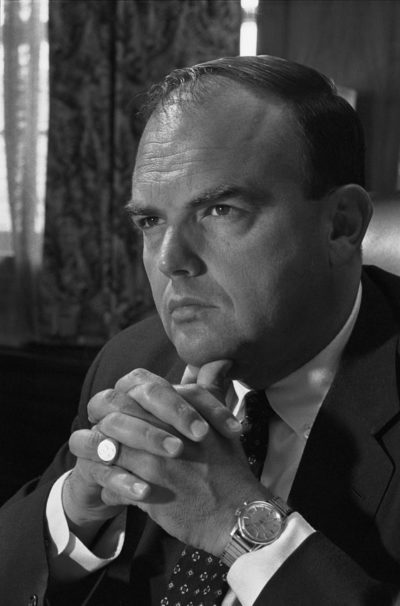
John Ehrlichman served as White House counsel and then assistant to the president for domestic affairs for President Richard Nixon. During all of the furor surrounding the Watergate Hotel break-in and subsequent scandal, Mike Wallace interviewed Ehrlichman. The visibly uncomfortable advisor denied that the White House was involved in a cover-up even as Wallace ran through the laundry list of charges being levelled. Ehrlichman’s protestations mattered little, in the end; in 1975, Ehrlichman was convicted of conspiracy, perjury, and obstruction of justice, and spend eighteen months in prison.
1992: Bill and Hillary Clinton Discuss Gennifer Flowers
The famous 60 Minutes interview with The Clintons.
In the midst of a contentious campaign that would later see Arkansas Governor Bill Clinton emerge as president, 60 Minutes sat down with him and his wife, Hillary, for what would become a famous interview. Bill Clinton had been dogged by allegations of infidelity, notably with Gennifer Flowers, who claimed that she’d had a 12-year-long affair with him. During the interview with Steve Kroft, Clinton minimized his association with Flowers. Hillary Clinton remarked that she was not “sittin’ here like some little woman, standing by my man, like Tammy Wynette,” in reference to the legendary country tune. That quote became an oft-repeated sound bite, and Wynette drafted an angry open letter in response; Hillary Clinton later issued an apology. The interview is still the fourth-most-watched interview in television history, with an estimated 40 to 50 million total viewers. Overall, the general consensus is that the piece may have saved Bill Clinton’s imperiled candidacy at the time by addressing the allegations directly.
1993: CIA Shipped a Literal Ton of Cocaine to America in 1990
The piece, “The CIA’s Cocaine,” earned a Peabody Award.
Pre-emptively embarrassing itself is not something that that Central Intelligence Agency chooses to do lightly, but they chose to do it by releasing one particular story. The CIA had to get ahead of 60 Minutes in 1993 when they discovered that the show was about to break some embarrassing news. An investigation revealed that during Reagan’s “war of drugs” in the ’80s, elements inside the CIA pitched a plan to the DEA and the Venezuelan military for an operation that would ship drugs out on the South American country into the United States in order to gain the confidence of Colombian drug traffickers. This was a plan that involved long-game thinking and complicated strategy, and the DEA wanted no part of it. The CIA did it anyway, with the unfortunate side effect that some of the cocaine made its way into the hands of American dealers to be sold. In the years since, rumors and conspiracy theories about the CIA’s involvement in the drug trade continue. Politicians like Representative Maxine Waters of California have called for further investigations, and books continue to be written that allege that the CIA was not only involved in South American cocaine, but in the crack epidemic as well.
2004: Ed Bradley Revisits the Emmett Till Murder
Correspondent Ed Bradley tried to speak to Carolyn Dunham (nee Bryant) about Emmett Till.
In 1955, 14-year-old Emmett Till was abducted, beaten, shot in the head, and thrown into a river, weighted down by a fan blade. The reason? It was alleged that he whistled at, flirted with, and touched a white woman, Carolyn Bryant. The men accused of the crime not only got away with it, but admitted to their guilt post-trial during a Look magazine interview. In 2004, Ed Bradley took a further look and attempted to speak to Bryant. She and her son both declined, but she would later remarkably recant portions of her story, including the portions regarding Till touching her, in a 2008 interview with historian Timothy Tyson. Bradley’s report is credited with helping to bring the Till story back into the spotlight, paving the way for Tyson to obtain the subsequent interview. The investigation into Till’s murder was reopened in July of this year, based in part on the recantation.
Healthy Weight, Healthy Mind: Someone Is Watching—and You Want Them to
We are pleased to bring you this regular column by Dr. David Creel, a licensed psychologist, certified clinical exercise physiologist and registered dietitian. He is also credentialed as a certified diabetes educator and the author of A Size That Fits: Lose Weight and Keep it off, One Thought at a Time (NorLightsPress, 2017).
Do you have a weight loss question for Dr. Creel? Email him at [email protected]. He may answer your question in a future column.
A recap of my workweek reminds me that social support is critical to relapse prevention.
- Last night I joined an exercise class for bariatric surgery patients. As we worked on a cardio routine some people were exactly in step with the leader, while others, like me, struggled to follow her. Nobody cared. Betty who had her surgery eight years ago, worked out beside Jason who had surgery six weeks ago. A lady six months post-op brought her husband who had surgery a week ago. He sat and watched us, planning to join the class in a few weeks. Matt, a single guy, has been a regular in this group for five years.
- Although he met the weight qualifications, George chose to lose weight without bariatric surgery. This week he showed up for an individual weight management session after being away for a month. His doctors are trying to understand why his painful medical condition doesn’t respond to treatment as expected.
“The pain is excruciating, but I’m on the upswing,” he told me.
“Many people will let these types of things weaken their determination, but not you. Why did you decide to come in today?” I asked.
“I’m not giving up. I know I’ve had a lot of health problems, but I won’t quit. I need the accountability and support you guys off I really appreciate having a place to come that reminds me of why this is important.”
- A mother and her 300-pound 14-year-old son, Tristen, started treatment.
“I think we know what to do, but we just can’t seem to pull it together and keep it together,” his mom told me. “We need support so we can work with each other and stay accountable for our goals.”
“What about you, Tristen? Why did you decide to show up tonight?” I asked.
“I want to play basketball this year for my school, but I can’t run up and down the court without getting tired. Although I can shoot, I’m too slow. Like Mom said, we need somebody to coach and encourage us, so we don’t quit like before.”
- I facilitated a bariatric surgery support group.
“Please introduce yourself and tell us why you decided to come tonight,” I said as we began our meeting. Person after person revealed they needed support. As I asked them to tell me a bit more, I heard:
“You guys understand.”
“I feel comfortable talking about my struggles here.”
“I don’t feel judged.”
“I can’t get away with any BS in this group.”
One member apologetically wept as she explained she lost her mother three months ago and reverted to emotional eating, gaining 20 pounds. Others chimed in, explaining how they recovered from similar lapses. They encouraged her to not give up. Toward the end of the meeting, several people mentioned the importance of forgiveness in their weight management process.
“We often think about forgiving others or asking God for forgiveness—but we have to forgive ourselves,” one man added.
I was amazed that most of the attendees had surgery over five years earlier and several were almost 15 years post-op. They still came to the group because weight management is hard and almost impossible to do alone. Even many years later, they still need support.
- I also spoke to Neil, the guy who lost 60 pounds, going from 260 pounds to around 200 during twelve months of treatment. If you recall, he decided to try and manage things on his own, so we developed a specific contingency plan to help him prevent relapse. Until yesterday I hadn’t spoken to him since his last visit six months ago, so I called him.
“Doctor Creel, what’s going on?” he answered in his usual upbeat tone.
“I’m just calling to check in on you—I want to see how you’re doing with your weight-loss goals.”
With his usual laidback attitude, he responded in a surprised but friendly manner, “Oh man, thanks so much for calling, that’s awesome. I’m doing good man, how are you?”
Neil sort of has a “cool factor” about him, making communication easy. “Things are good here, too,” I said, sounding less hip, I’m sure.
“Oh, wow, well I’ve been doing pretty well since I stopped coming in. I actually lost another five pounds or so and then Thanksgiving rolled around and you know, I just relaxed a bit, drank a little too much and gained about ten pounds. I actually took about five of those pounds off and then Christmas and family get-togethers and all of that hit. I put on some more weight and actually hit 210. I said, that’s my limit and have been doing well since. I’m back down to between 200-205 and I’m feeling good. I just have to keep weighing and make adjustments when my weight heads in the wrong direction. The exercise is still happening. I religiously use my elliptical and I’m thinking about adding strength training.”
“It sounds like the scale and your exercise equipment are your friends!”
“Absolutely. I still struggle sometimes with eating cheeseburgers and drinking too much around the holidays or when I hang out with my friends, but you know, I don’t feel good when I do that. I just keep reminding myself of that.”
“Is there anything we can do to help out?”
“Not right now, but I may come next month just to check in and have some accountability. I really appreciate your call.”
“Well, thanks for talking with me, and congratulations on your success. I look forward to seeing you next month, Neil.”
Even though Neil didn’t follow our contingency plan to perfection, he’s doing a lot of things right. He continues to weigh himself and assess the behaviors that lead to weight gain. Our conversation told me he was concerned about weight gain, but didn’t get overly upset about it. Instead, he took a practical approach. Sure, he could have had a more specific plan for his deviations around the holidays, and perhaps in time he’ll respond a bit quicker to weight gain, but things didn’t move too far out of control before he got back on track. His response to my call shows the importance of support for anyone who wants to maintain weight loss. I hope Neil will make it back to the office so we can provide ongoing help.
Humans are social creatures. Solitary confinement is punishment. Children placed in timeout don’t like it, because even negative attention is better than being away from the action. Trying to manage your weight without the help of others can feel like solitary confinement at times—like a continual timeout when everyone else is living a full life while you’re stuck in a corner because of some indiscretion or personal weakness. When it comes to something as challenging as managing your weight, feeling alone in a crowd increases your chances of relapsing.
For most of us, the default is to fall prey to unhealthy food and an inactive lifestyle. Having the right kind of support can protect you from pitfalls and inspire you when times get tough.
Perhaps you’re already surrounded by people who help with your weight loss efforts. Thank them. Others of you are surrounded by people who want to help but aren’t good at it. And some of you don’t have anyone to help with your journey.
For those of you who have Dennis the Menace supporters (want to help, but seem to make things worse), there is hope. Although it requires a little work, being an effective weight manager requires communication with the people around us. Tell your willing supporters what they can do to help, rather than complaining about how their help is annoying. If a person’s heart is in the right place he’ll listen to you and try to adjust his approach.
Remember that positive reinforcement goes a long way. If your husband every once in a blue moon does something that supports your efforts, tell him exactly what he did and why it helped you. On the other hand, when he tries to assist you with an unhelpful comment such as, “Is that something you should eat?” try hard to communicate you appreciate his willingness to help. Instead of losing your temper, coach him in what to say or do when he notices you eating something that isn’t healthy. If you want him to say nothing, let him know that. Over time a caring spouse, friend, or even a professional will get better at providing support when you provide them with feedback and gentle instructions.
If you don’t have adequate support or feel as if you need more than your friends and family can reasonably provide, consider joining a group of like-minded people such as:
- Weight Watchers
- TOPS (Take off Pounds Sensibly)
- Overeaters Anonymous
- Hospital sponsored bariatric or general weight management support groups
- A walking club
- Fitness classes
- Cycling clubs
- Recreational sports
- Online support groups
Although the above suggestions can lead to friendships with people who are interested in fitness and healthy weight, you can also find kindred spirits in social activities without a health theme. People can be supportive even if they don’t share all your health interests. Volunteering and becoming involved with local groups is a great alternative to pleasure or stress eating and may lead to friendships that will help with your weight management. A quick internet search for volunteer opportunities will show you many ways to get involved, including:
- The United Way
- The Red Cross
- Animal rescue organizations
- Retirement communities
- Hospitals
- Churches
- Battered women’s shelters
- Food pantries and soup kitchens
- Coaching youth sports
- Homeless shelters
- YMCAs
- Political campaigns
- Event volunteering
- Schools
- Boys and Girls Clubs
If you’re like me, your life already seems full, and getting involved with a group may sound overwhelming. Even friendships may be a challenge because of your busy life. If so, this busyness probably makes it harder to manage your weight. Are there responsibilities you can let go of so you have time for true friendship? Is perfectionism keeping you in an overwhelmed state so you don’t have time to connect with other people? We all have different needs when it comes to human interaction, but everyone benefits from meaningful relationships—if we slow down and make time for them.